Kitchen Counter-Window Sill with Photos
A window sill that gradually transitions into a table is a great idea that allows organizing a compact dining area. It can be used, for example, for morning tea time
But the advantages of this combination don't end there. All its features should be examined more closely.
Pros and Cons of a Counter-Window Sill
The merits of such a construction clearly outweigh the drawbacks. Among the pros:
- space savings on the kitchen, allowing to organize not only a table but also an additional storage system underneath;
- the room will not look like a closed space, which can sometimes be oppressive;
- it enables implementation of many innovative design ideas;
- electricity savings due to no need for lighting the work zone;
- the housewife will enjoy the view of the landscape outside the window rather than the tiles on the kitchen backsplash, which quickly becomes tedious.
What about the drawbacks? The main disadvantage is the impossibility of moving the countertop to another place, related to difficulties in dismantling. And another detail: curtains with water-repelling properties must be hung on the window.
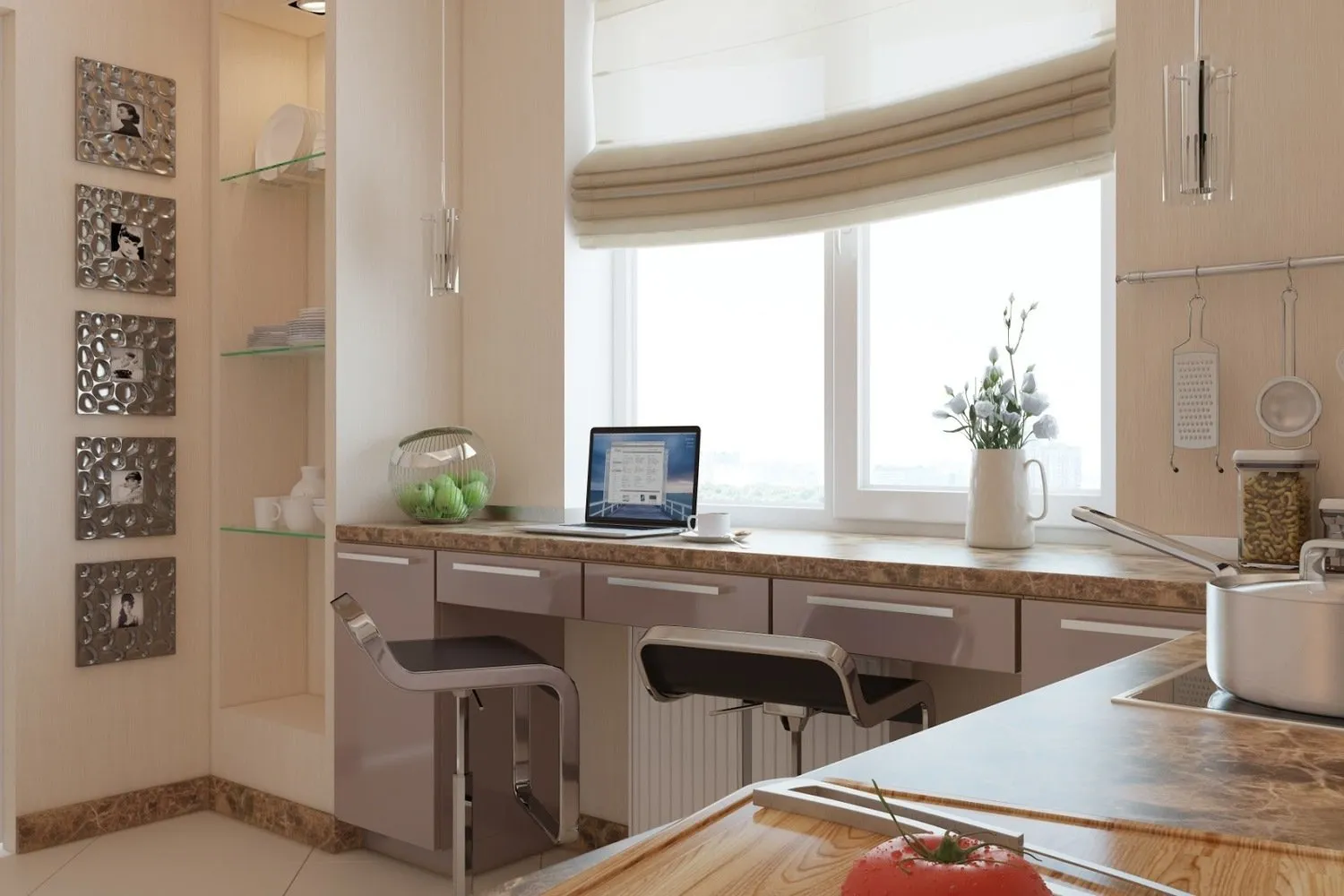
How to Use a Counter-Window Sill
Often, the idea of combining these two elements comes to owners of small kitchens. There are several options for integrating the countertop and window sill, which allow using space most rationally while enhancing the room's interior with the window sill.
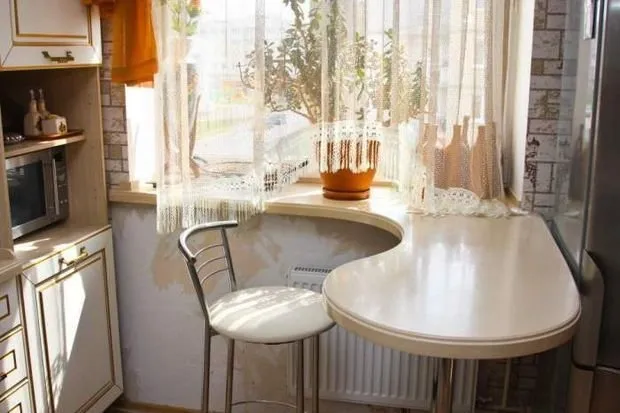
With Built-in Sink
It is worth noting an interesting study by American designers. They have long realized that when working with the sink, housewives are not interested in examining the pattern on the kitchen backsplash tiles. Therefore, it is more logical to mount the sink near the window. Such a solution diversifies the routine dishwashing and brings only positivity. But there is an important detail: when relocating the sink, it is necessary to correctly choose the angles of the drainage pipes to avoid disrupting their proper functioning (it's better to consult specialists).
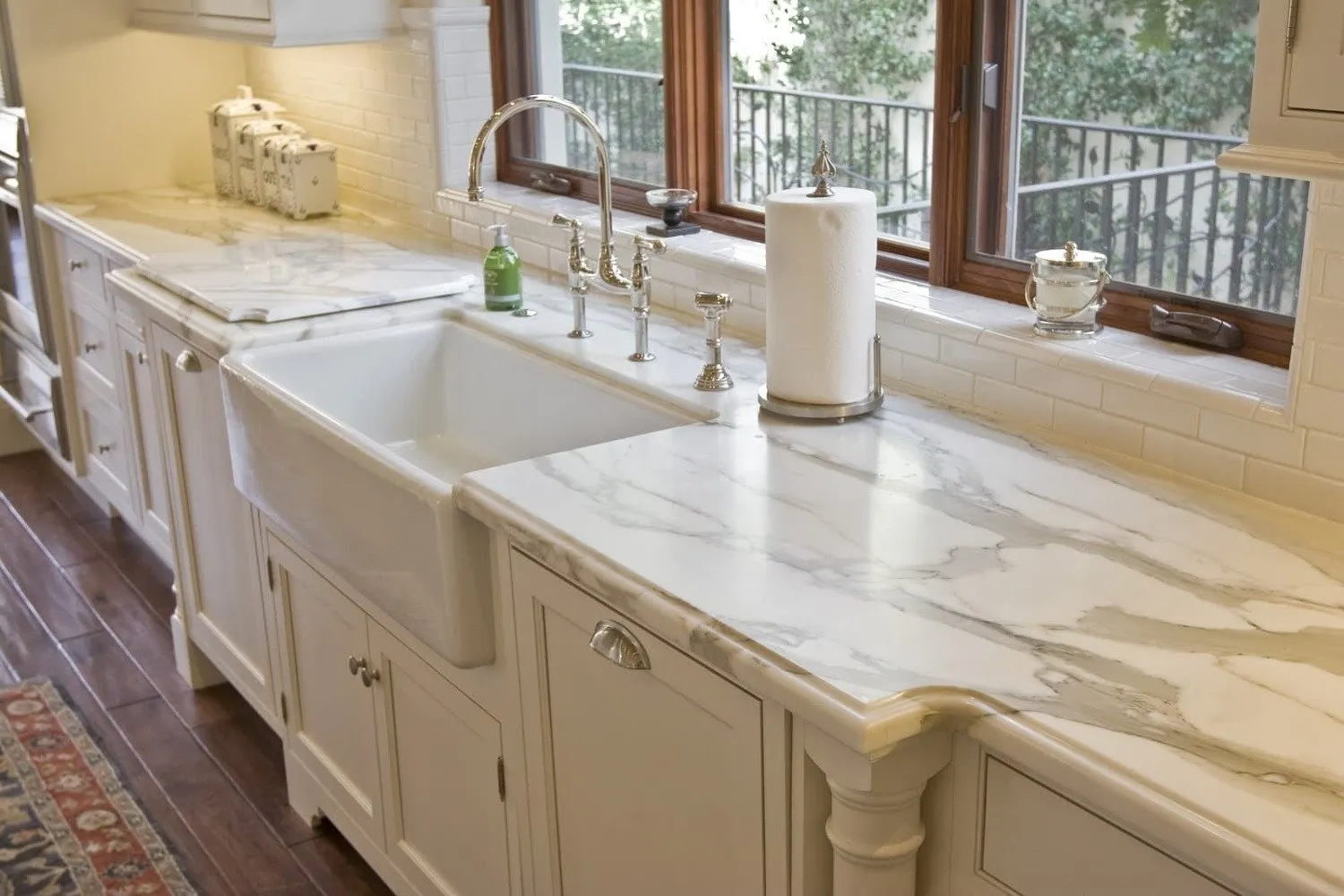
From the Window Sill – Dining Table
This is also a good solution for a small kitchen where a large kitchen table would only be in the way. At the same time, using the window sill significantly saves space. It should be noted that the opinion that such a table won't fit more than two people is wrong. With properly chosen countertop, when it seems to flow out from the window sill, such a construction can accommodate four family members. Of course, it's unlikely one would celebrate holidays here, but for breakfast this is an ideal spot!
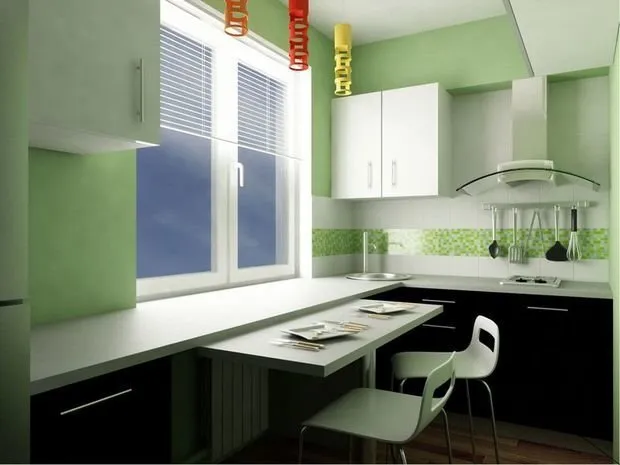
Recommendations from Architect Mikhail Chenzov
Bar Counter
When organizing this, one can completely do without a dining table and move it to the living room. There is another option: buy or make a folding counter. In this case, it is used only when necessary. In other cases, one can use a regular dining table.
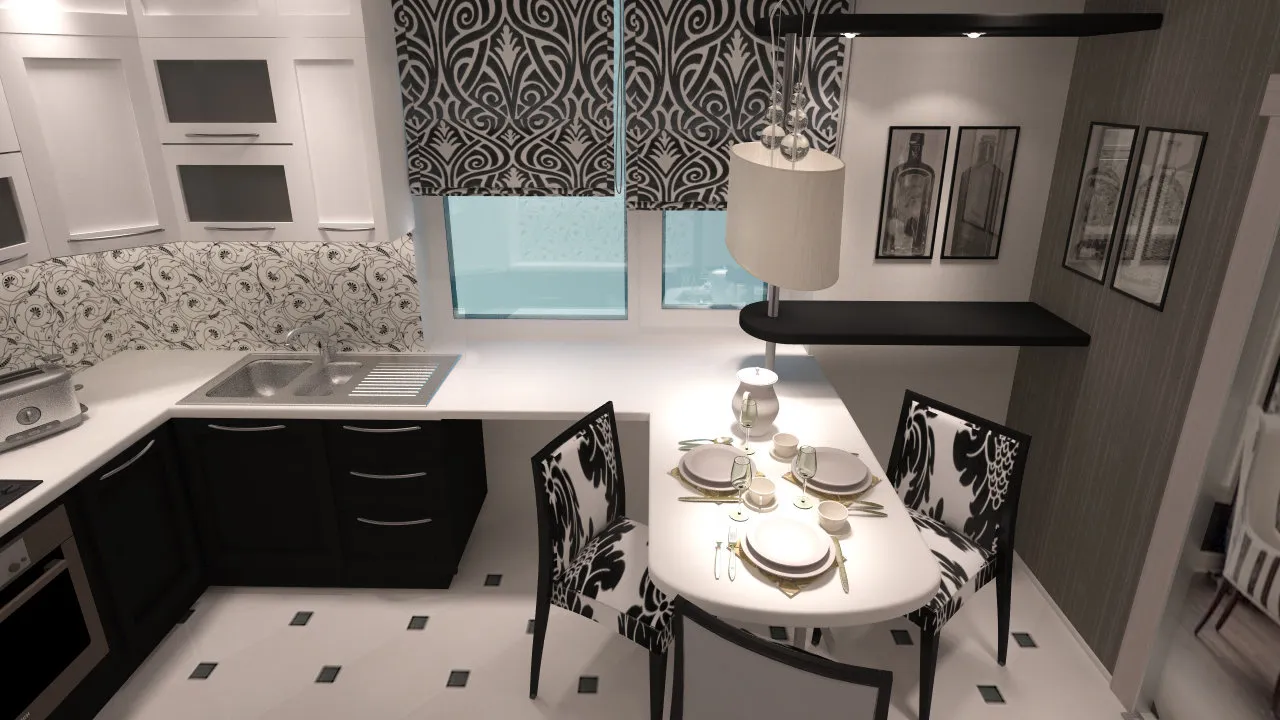
Work Surface
The idea of organizing a full work area using the window sill allows solving several tasks at once: use the usually empty corner between the wall and the cooktop, and create a table under which a small cabinet or just open shelves can be placed. To achieve such space organization, it is sufficient to slightly expand the window sill and extend it along the nearest wall.
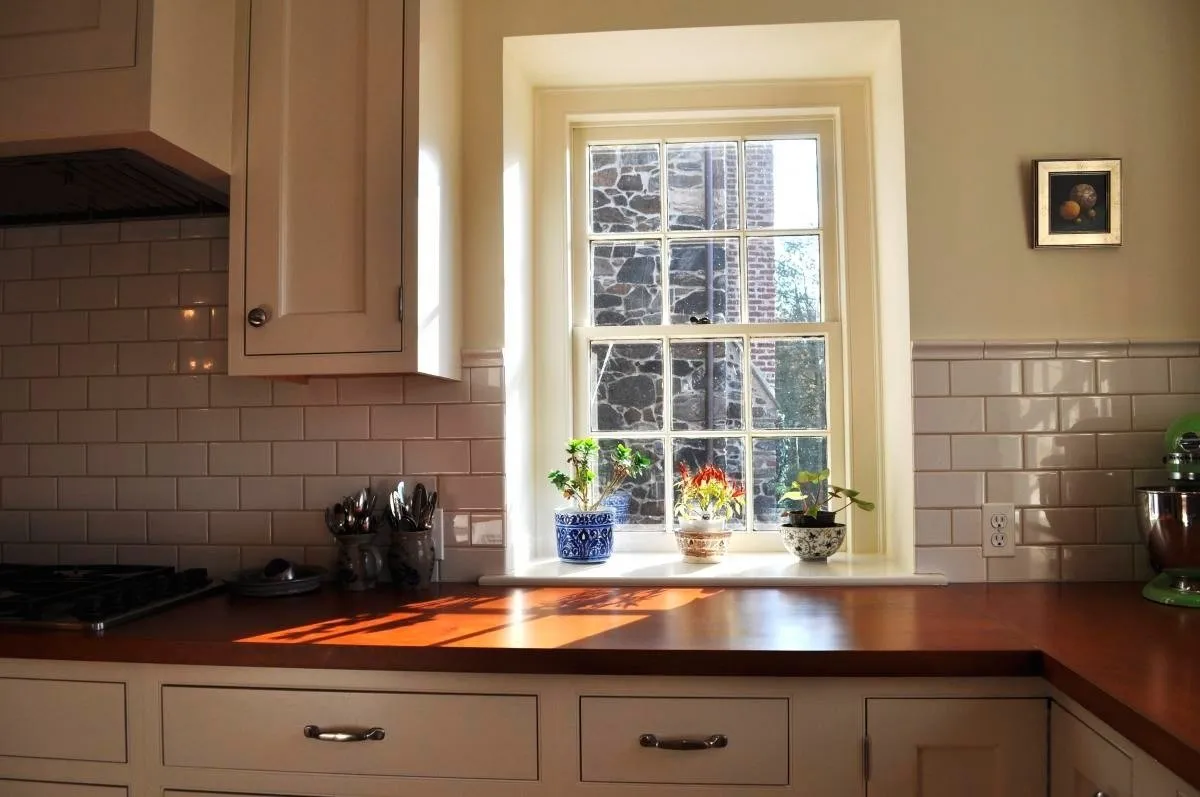
Relaxation Zone
This can be organized if the kitchen is spacious enough. From a low window sill, a bench can be made, on which soft cushions should be placed. As a result, you will get a comfortable place to rest where after work, you can calmly have a cup of tea while admiring the evening city landscape through the window.
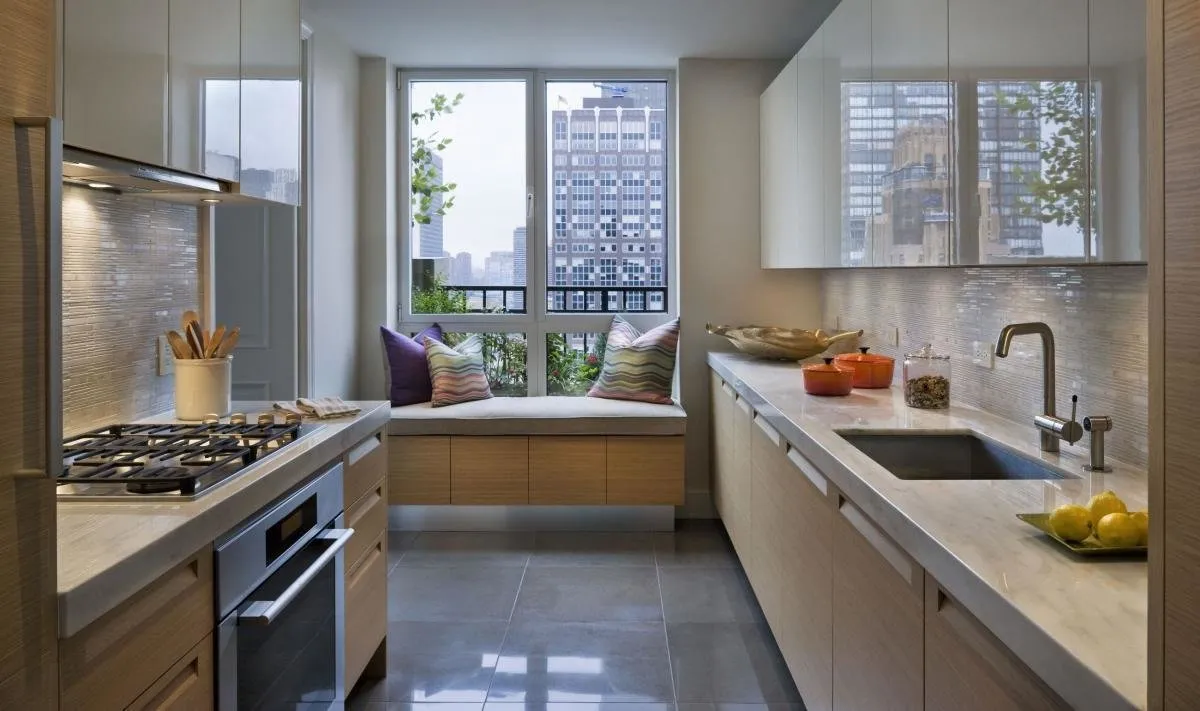
How to Choose the Material
When outfitting a work or other surface, the main requirement is to be moisture-resistant and suitable for frequent cleaning, i.e., wear-resistant. The material should not absorb grease and be indifferent to mechanical, chemical (cleaning agents) and temperature impacts. Based on the above, the following materials are considered most optimal for making a work surface.
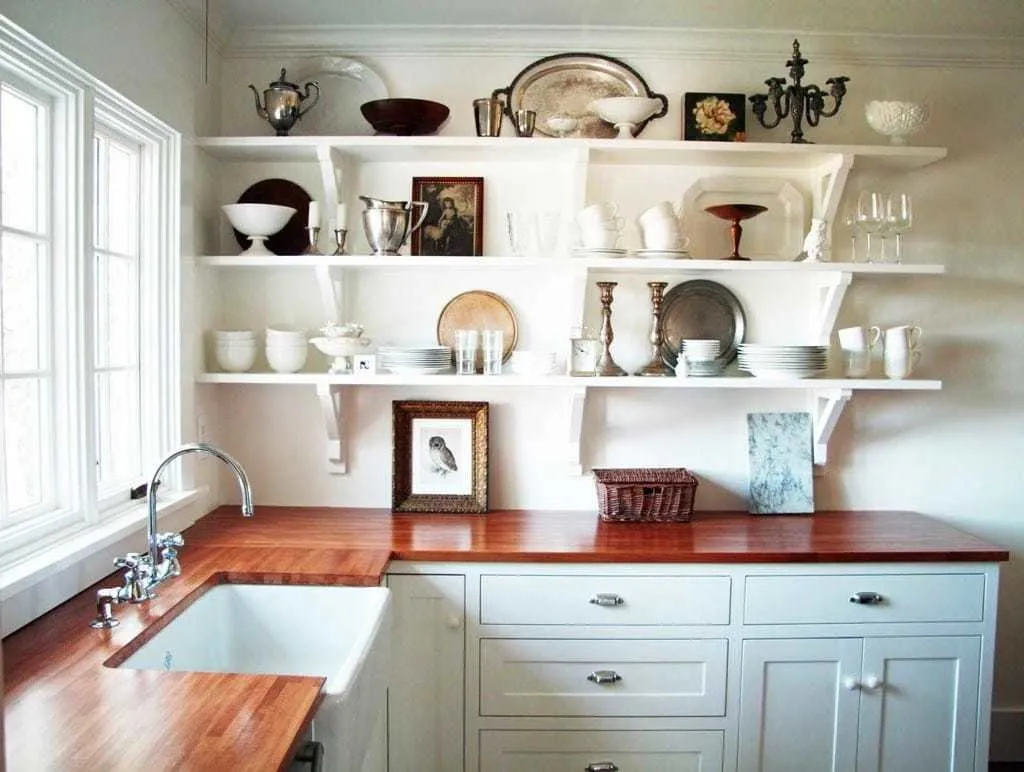
Particle Board, MDF
The minimum thickness of particle board is 12 mm. It is better to use laminated material (LDP) or cover it with ceramic tiles yourself. When laying the tiles, try to make minimal gaps to avoid moisture entering. Cover the ends with metal or ceramic angles and the edges near the wall with plastic molding. One of the advantages of particle board and MDF is that all necessary additions to the window sill can be made independently. In addition, this material is relatively inexpensive. Also: the color variety of MDF and LDP allows making a structure that will perfectly match your chosen style. The drawbacks include poor scratch resistance and inability to withstand heavy loads.
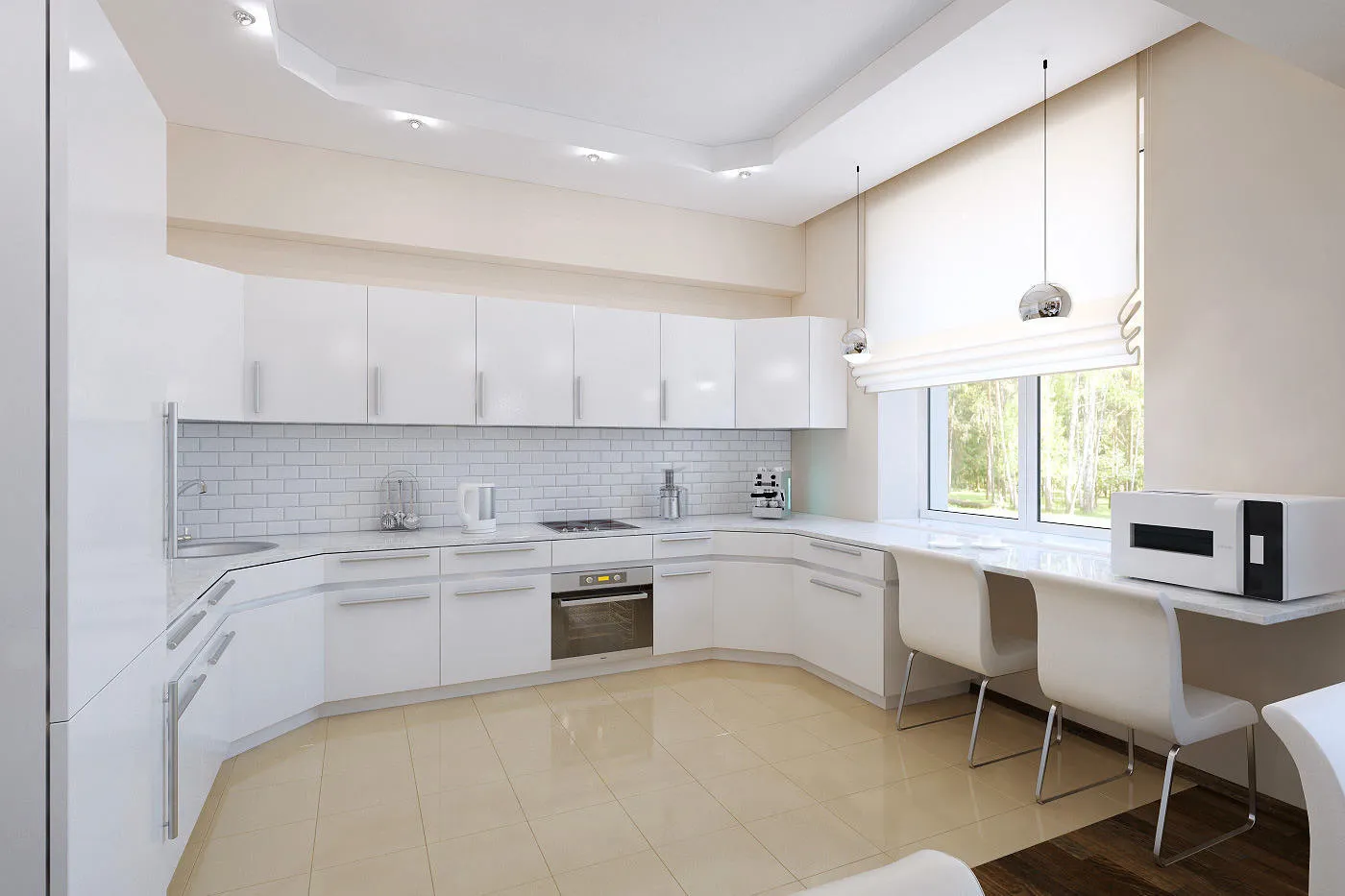
Artificial Stone
This refers to cast or agglomerate marble (more precisely, its imitation), as well as synthetic acrylic corian. These are innovative materials that visually are almost indistinguishable from natural ones. At the same time, they possess equal strength and good resistance to chemical and mechanical impact. Both acrylic and artificial marble are completely indifferent to moisture, and they can be easily polished and restored to their original appearance when damaged.
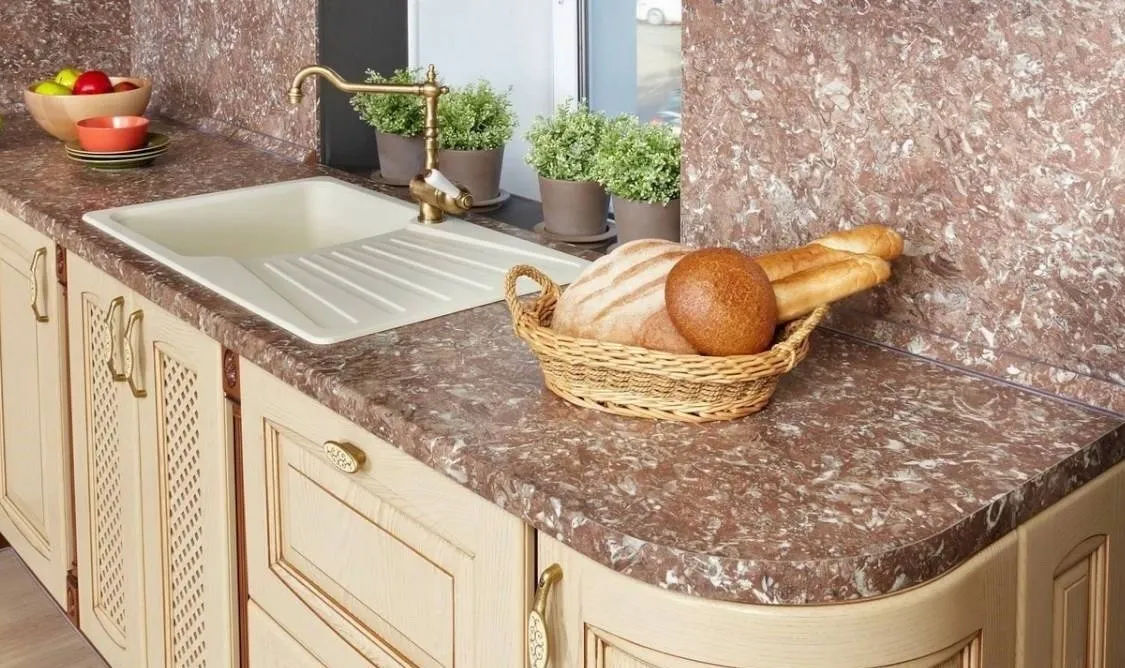
Natural Stone
This is the ideal option for a countertop. Granite, quartz, onyx or marble – durable materials that are immune to scratches, sun rays and high temperatures. However, marble does not tolerate substances with acidic and coloring properties (wine, coffee and even tea). When using granite, it is necessary to ensure its radiation safety. Onyx looks very attractive: it lets sunlight pass through and beautifully glows in daylight. Natural stone has common drawbacks: high cost, complexity in processing, and large weight.
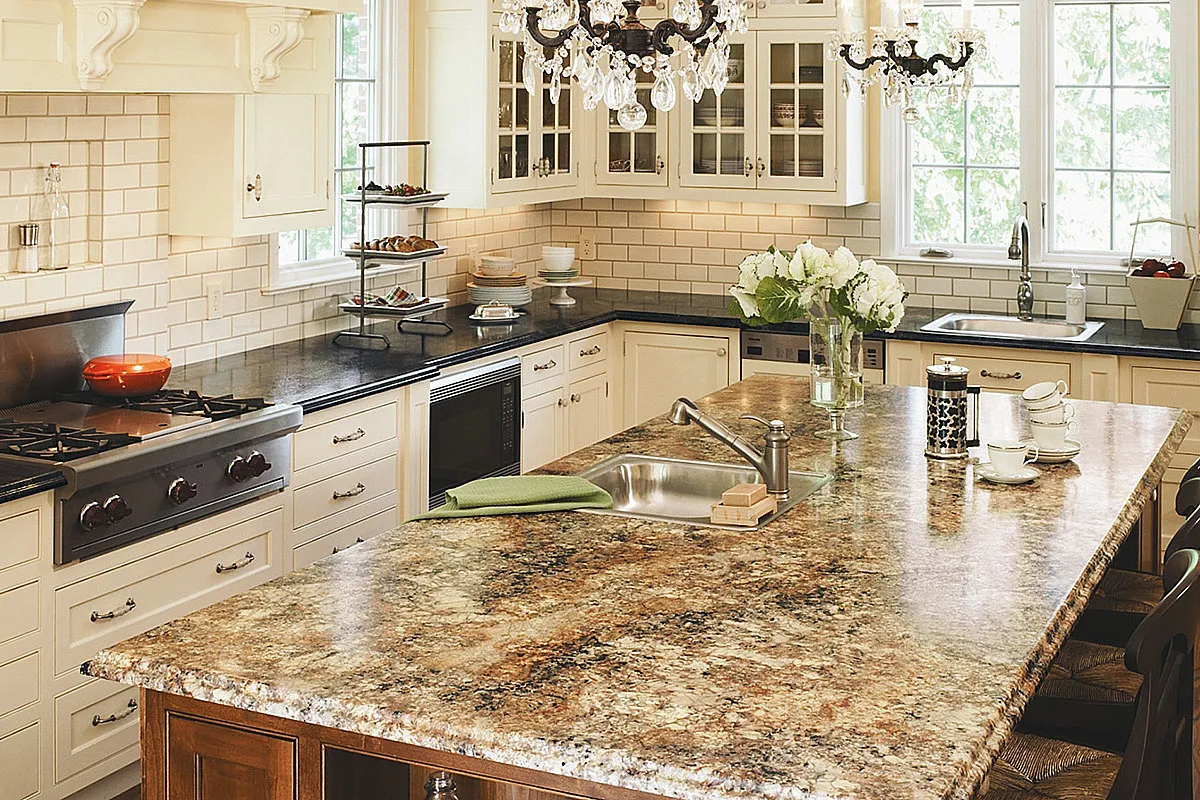
Metal
This material most accurately meets the stylistic requirements of the hi-tech direction. Metal has undeniable advantages:
- eye-catching and bold appearance;
- high resistance to water (stainless steel), temperature fluctuations and sunlight;
- simpleness in maintenance.
Among the negatives, it should be noted that scratches and deformations can occur if the metal is not thick enough. Also, over time, the surface fades. Therefore, stainless steel is usually used only for sinks, combining metal with other materials.
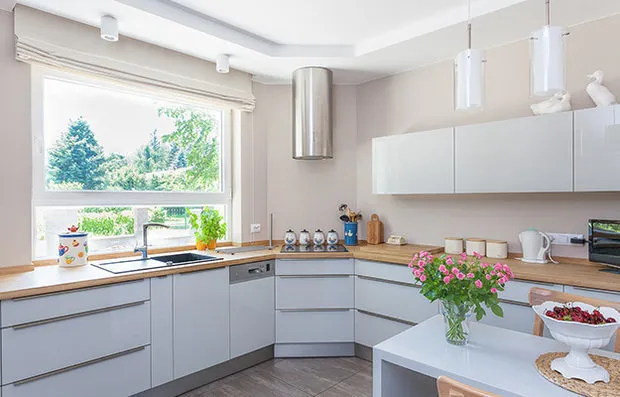
Plastic
This is a budget-friendly option for constructing a structure that includes the window sill countertop. There are also its own pros:
- durability;
- high resistance to fading and moisture;
- possibility of constructing long countertops;
- a wide selection of color palettes.
Among the negatives, one can note sensitivity to high temperatures and mechanical damage. Indeed, today manufacturers offer special types of plastic that do not have the above disadvantages. But the price of such material is already comparable to that of artificial stone.
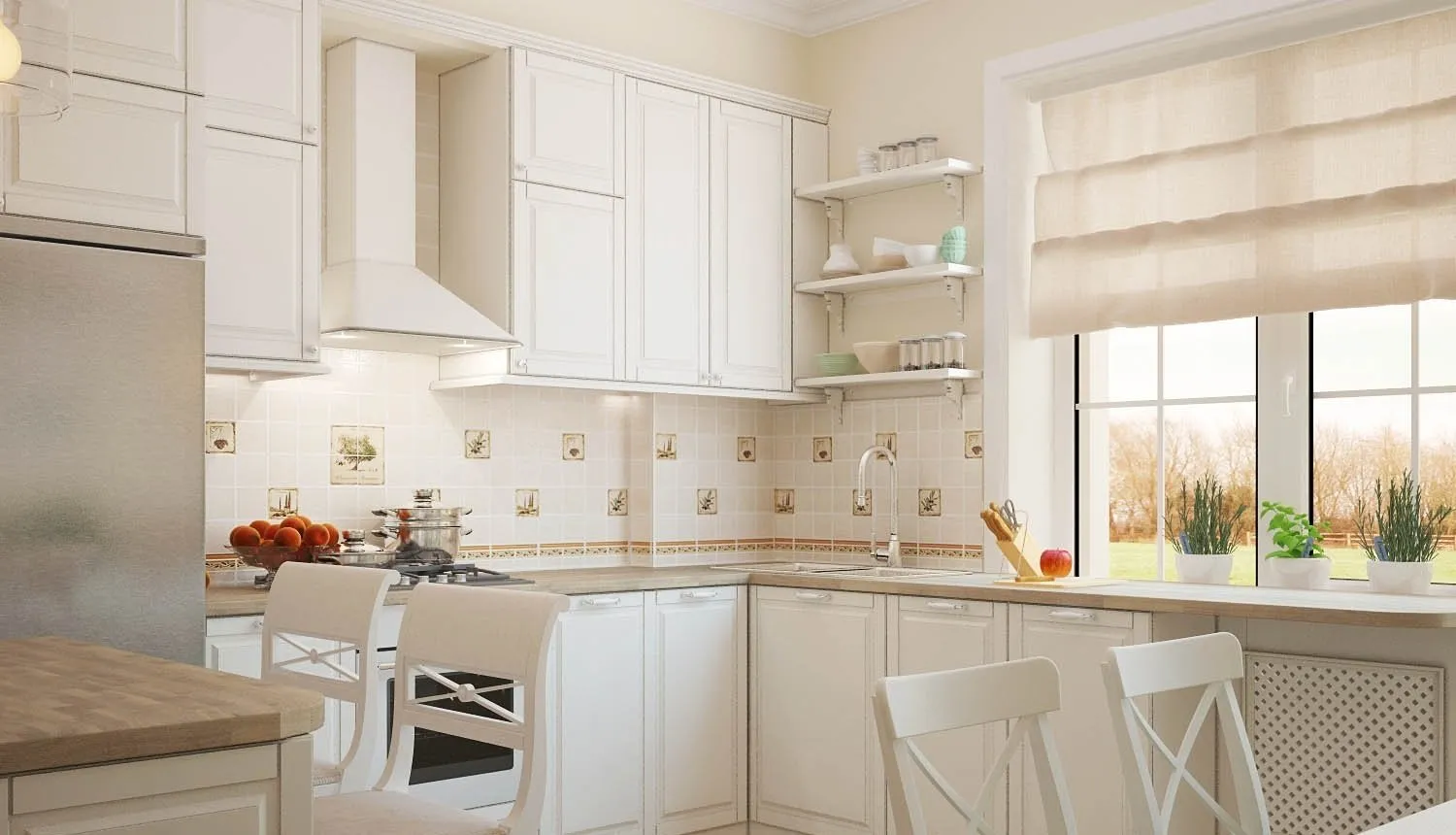
Wood
This is a classic material traditionally used for making furniture and various interior elements, including countertops and window sills. Undeniable advantages of wood:
- high ecological safety;
- attractive appearance that perfectly fits into any interior;
- a fairly extensive choice of shades connected with various wood species.
Among the negative aspects, one can note poor resistance to moisture, high temperatures and scratches. These problems can be partially solved by pre-treating the wood with antiseptics and anti-fire compositions (substances that prevent ignition). Nevertheless, wooden countertops require special care and gentle treatment.
Today, the market offers a wide range of countertop options made from any of the above-mentioned materials. However, the greatest effect in terms of space savings and creating an interior effect can be achieved by making a countertop yourself or ordering it from a professional organization.
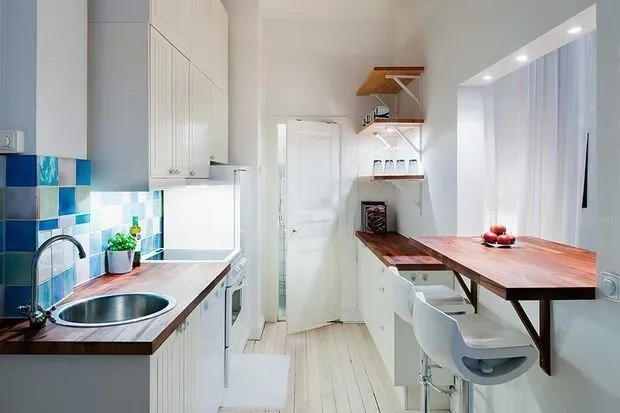
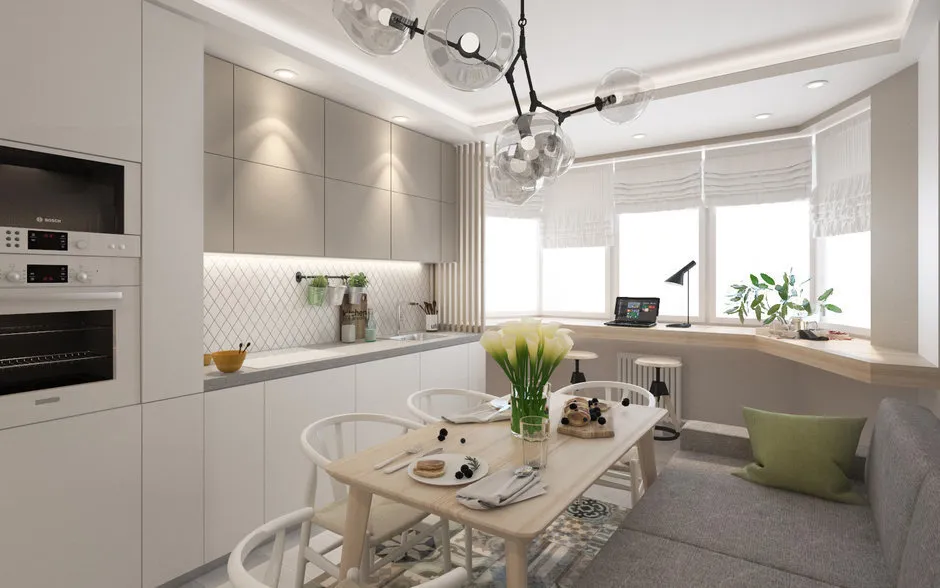
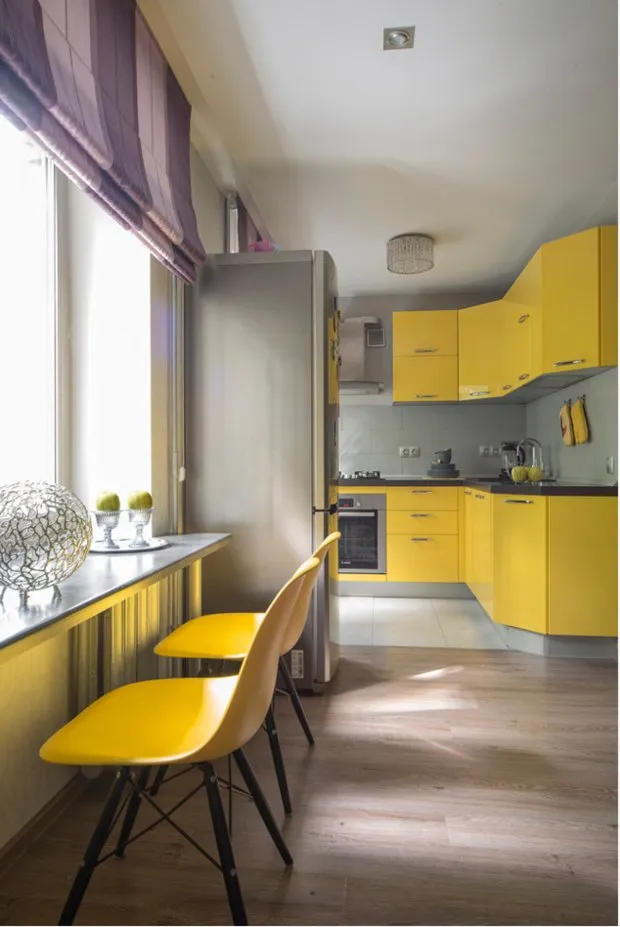
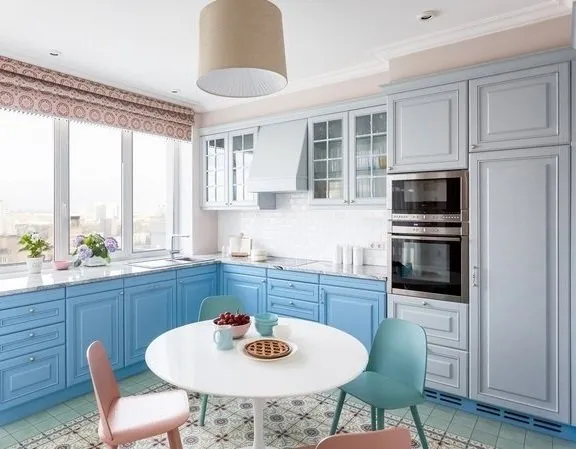
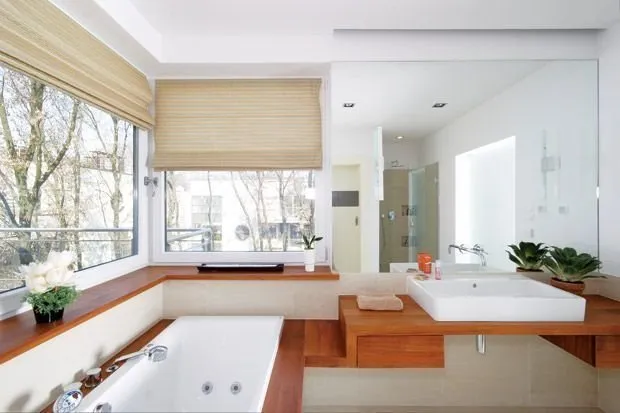
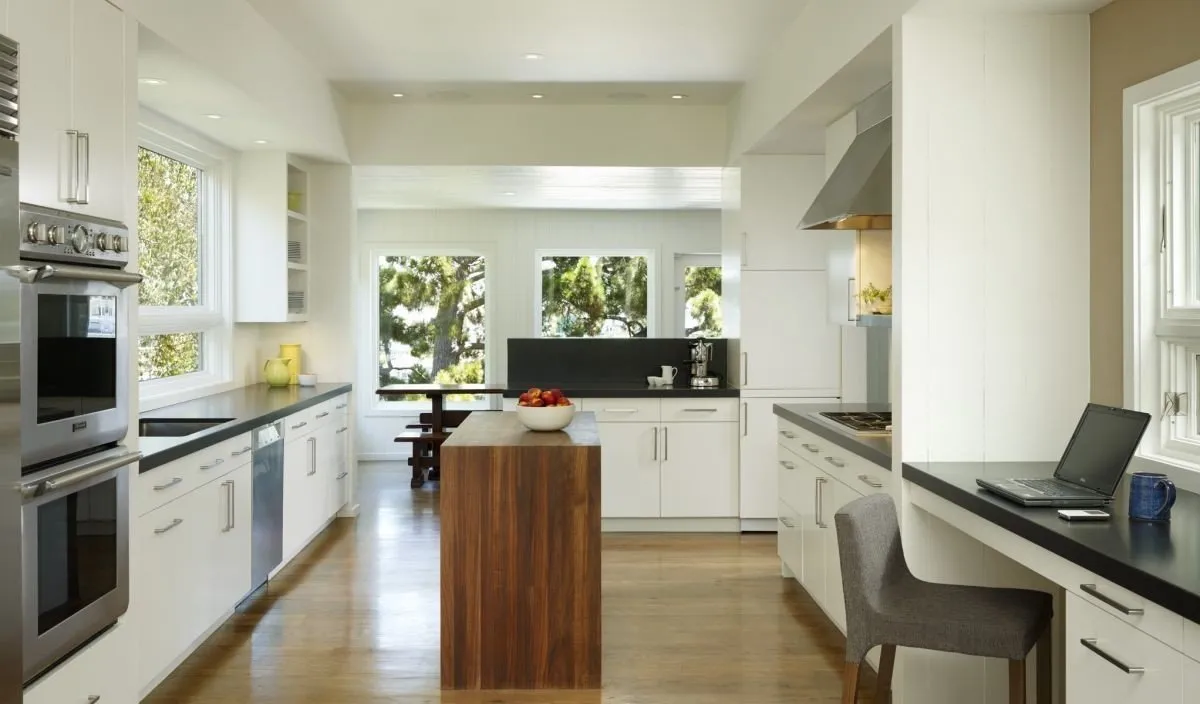
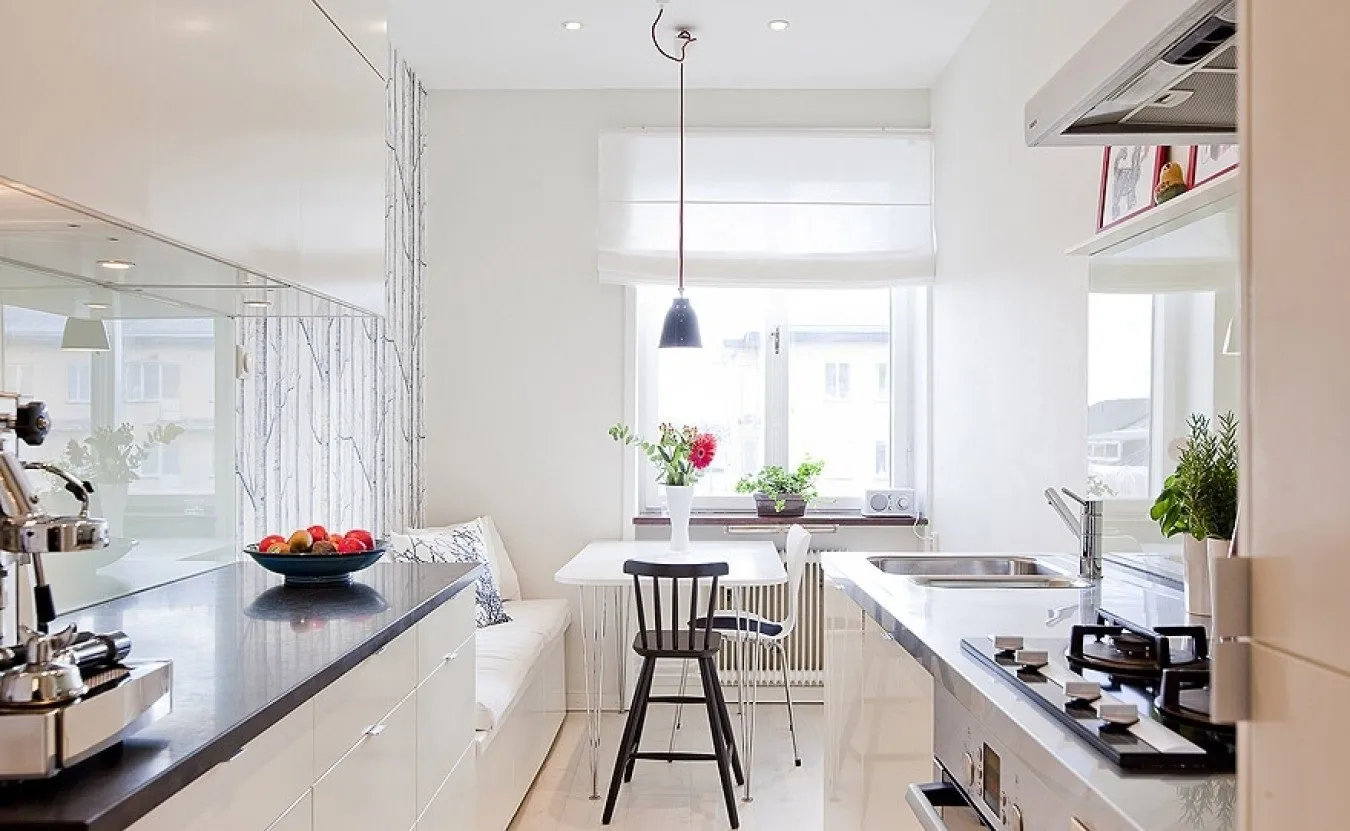
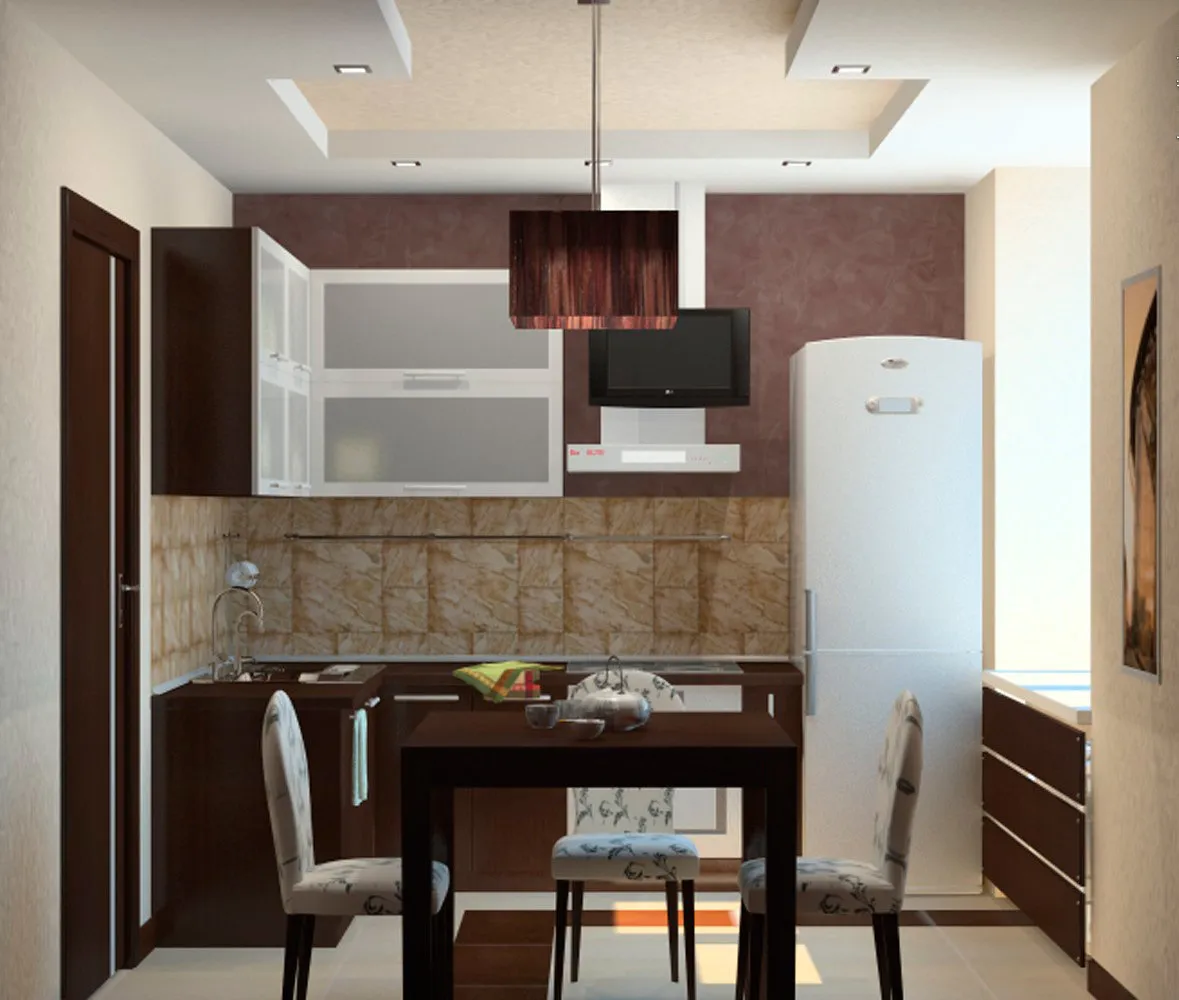
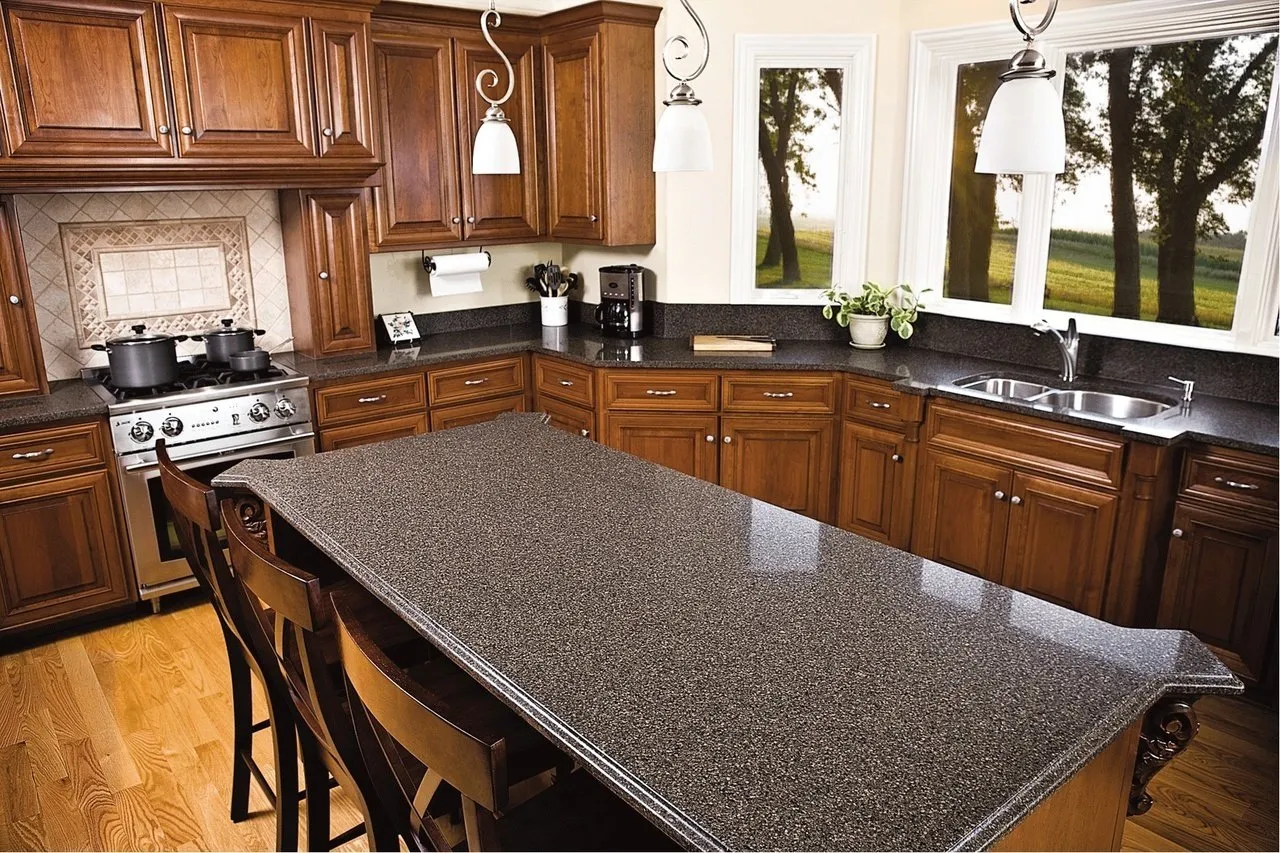
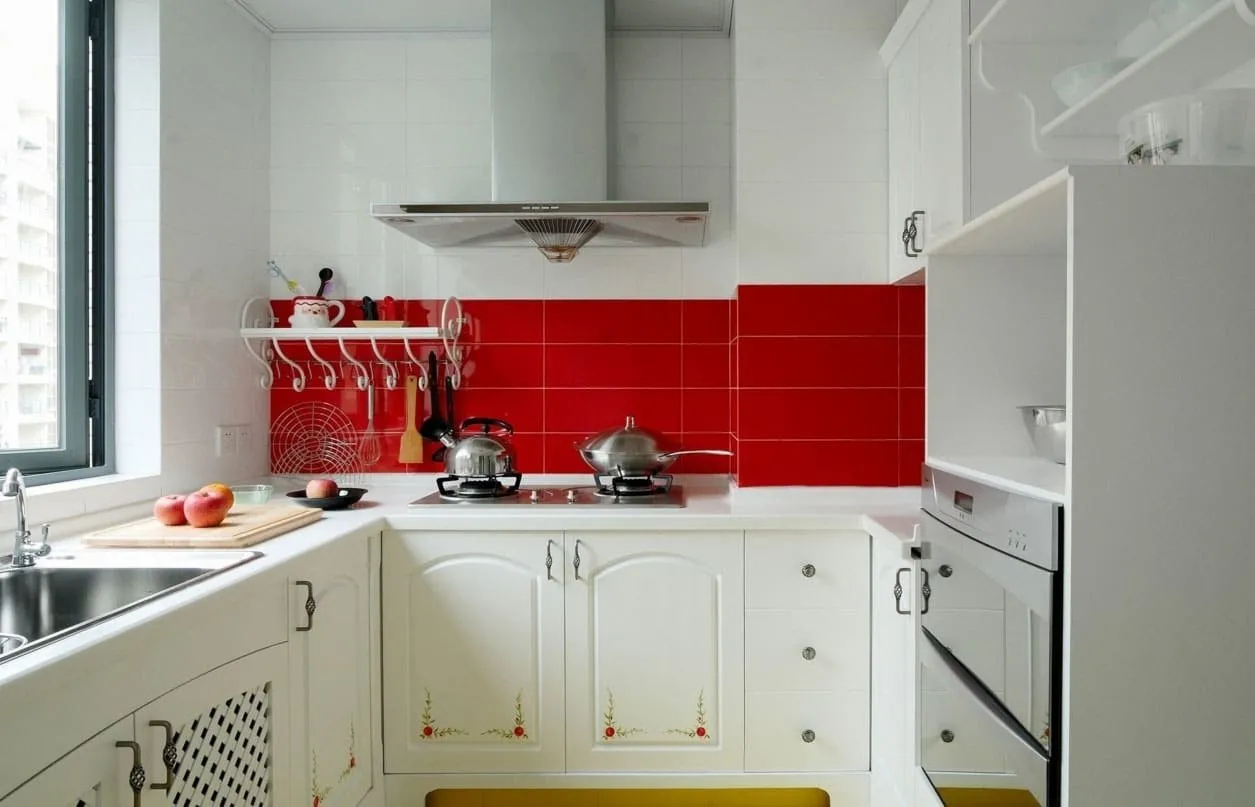
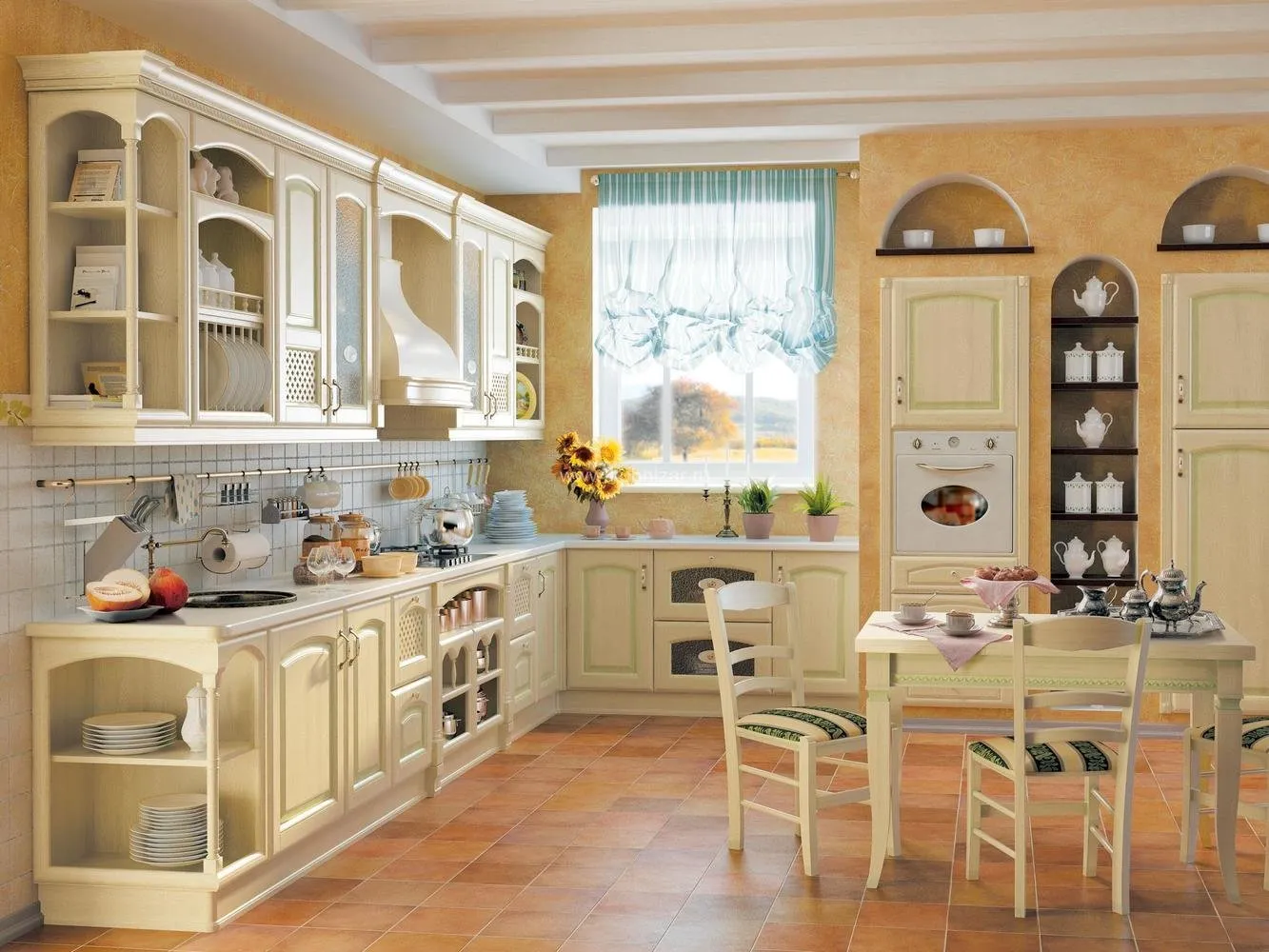
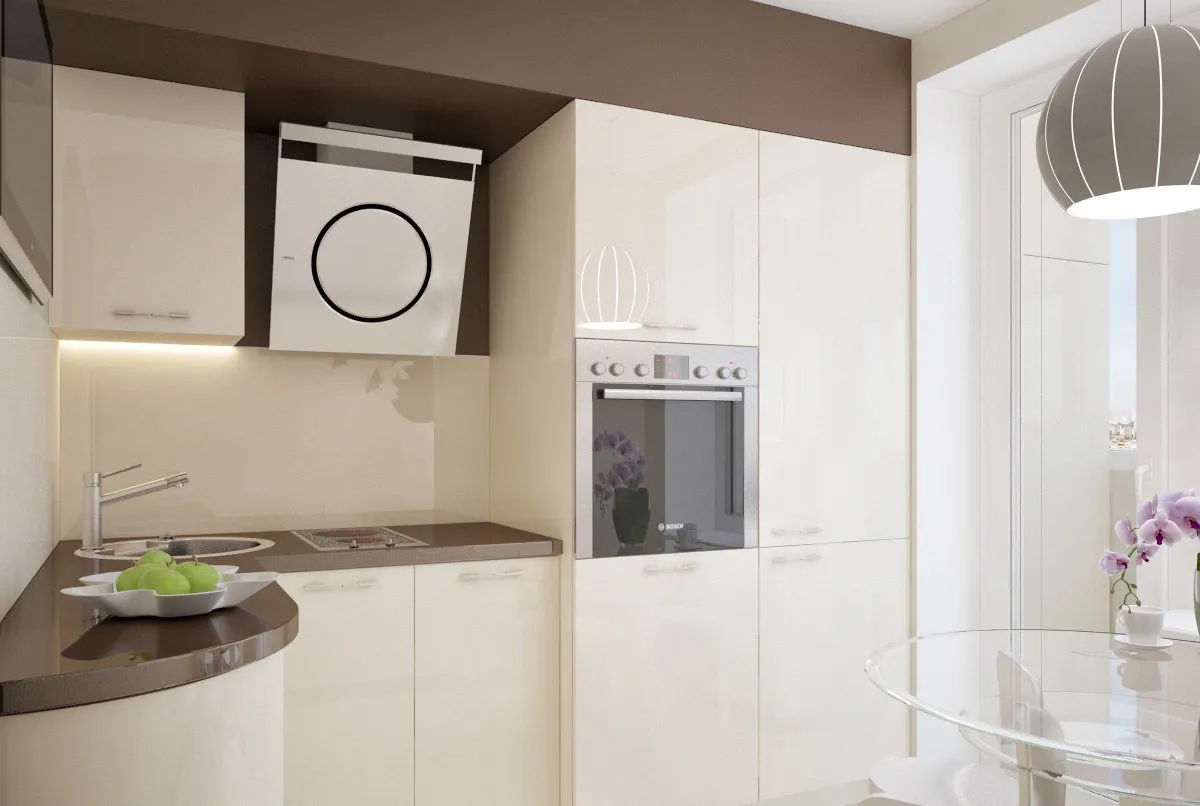
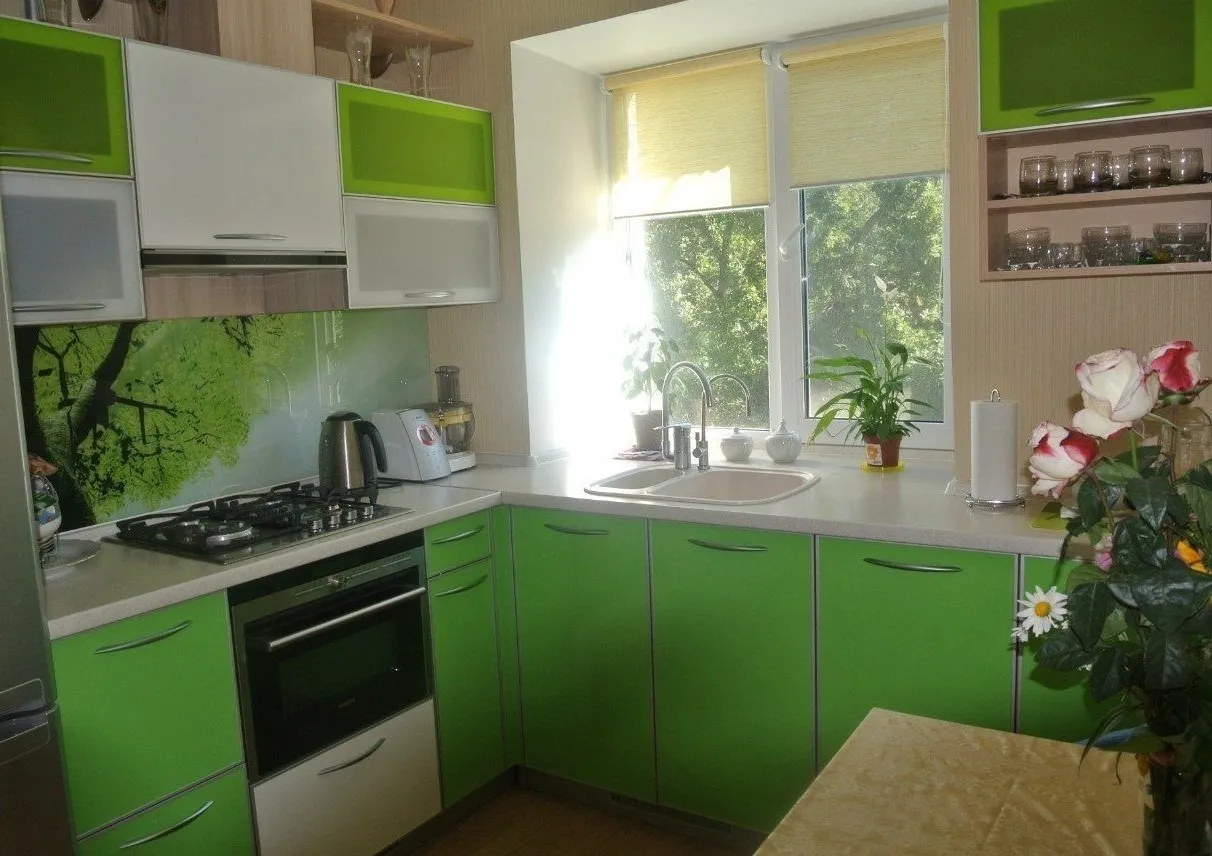
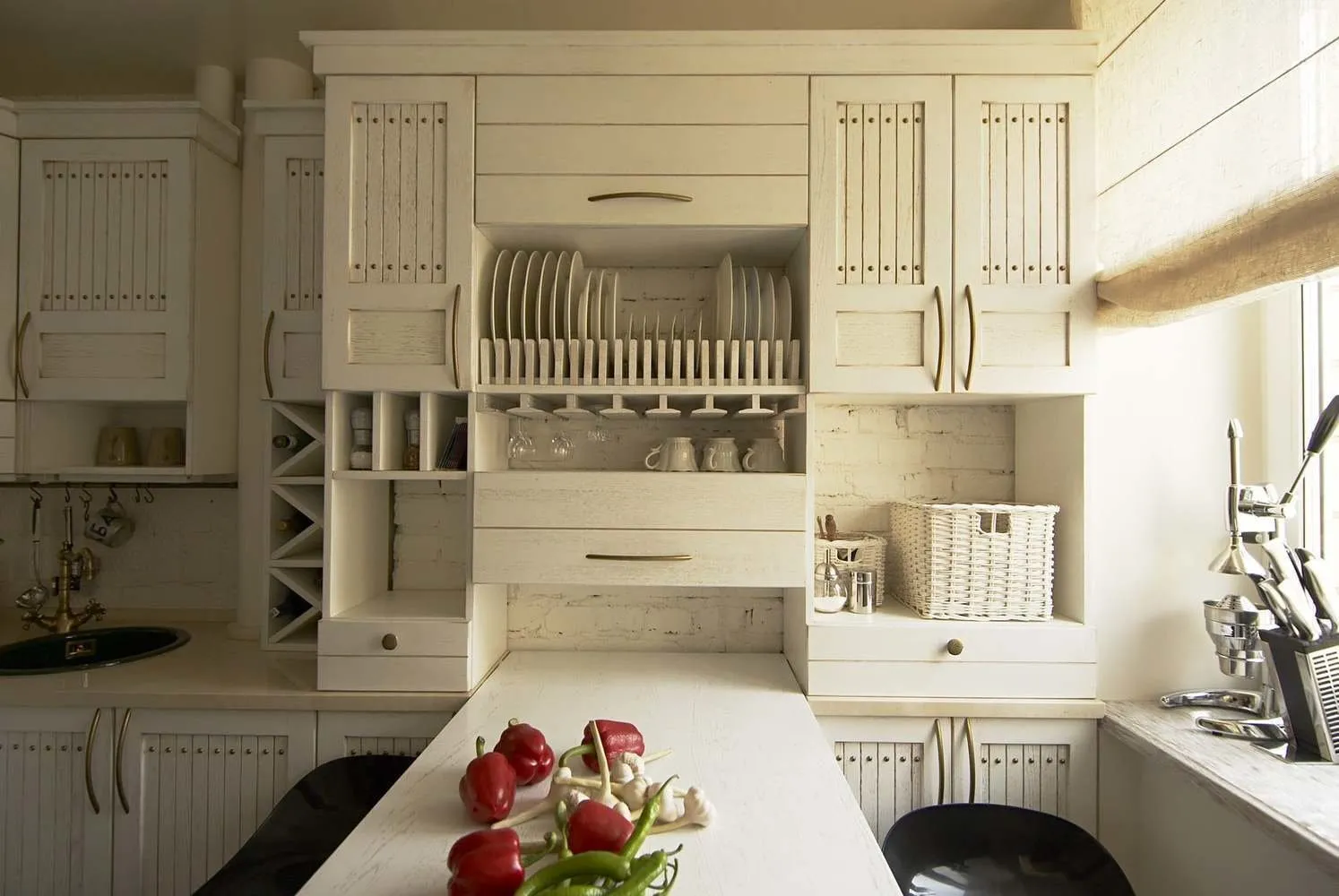
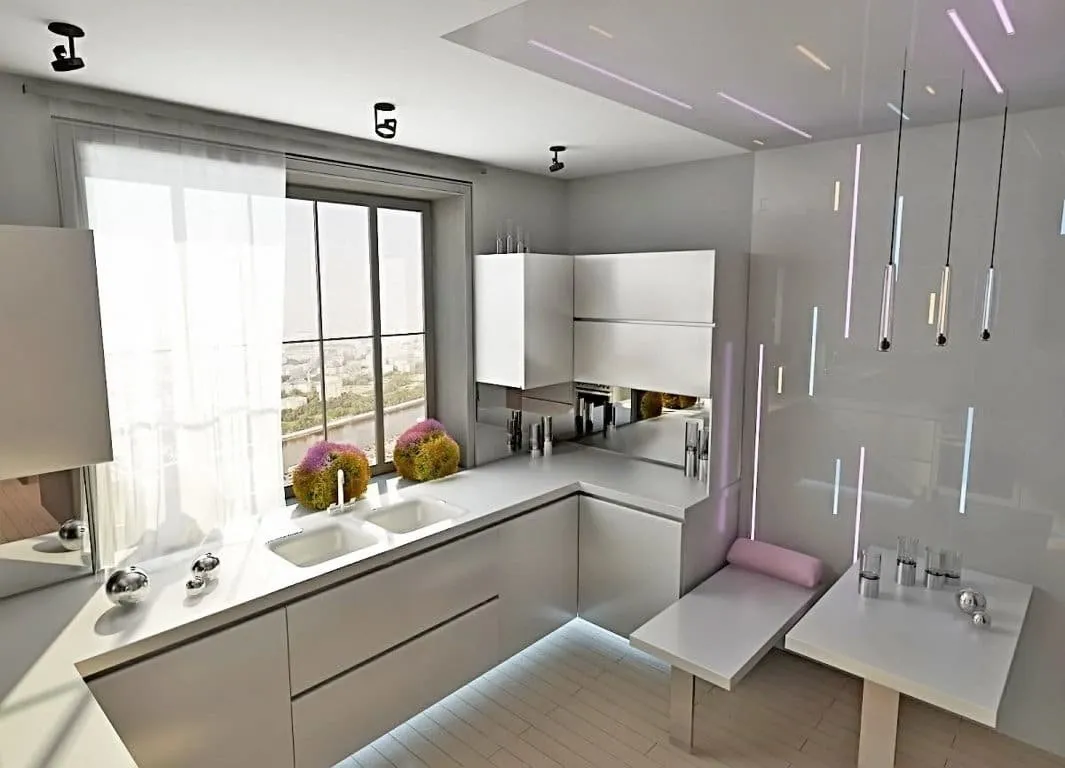
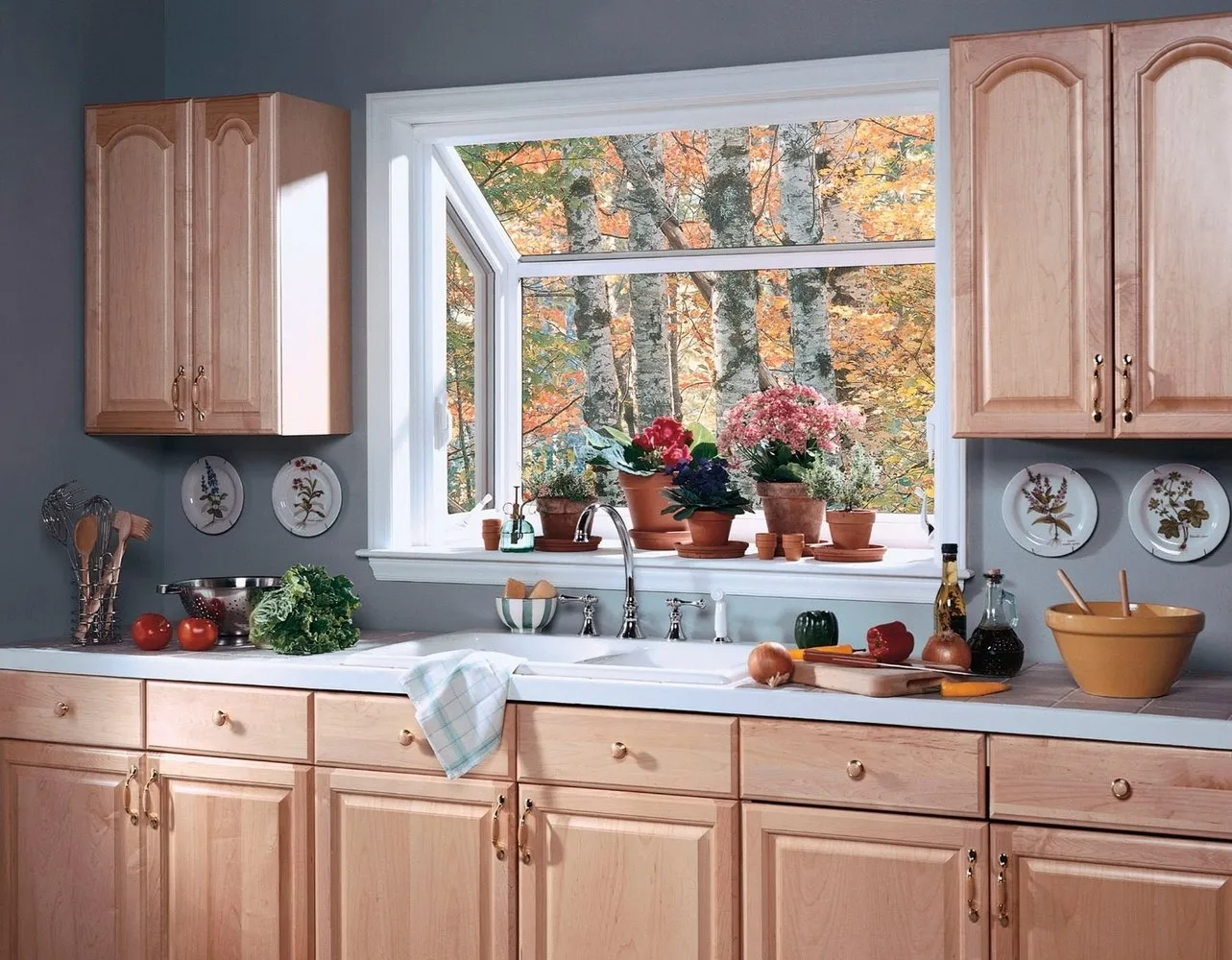
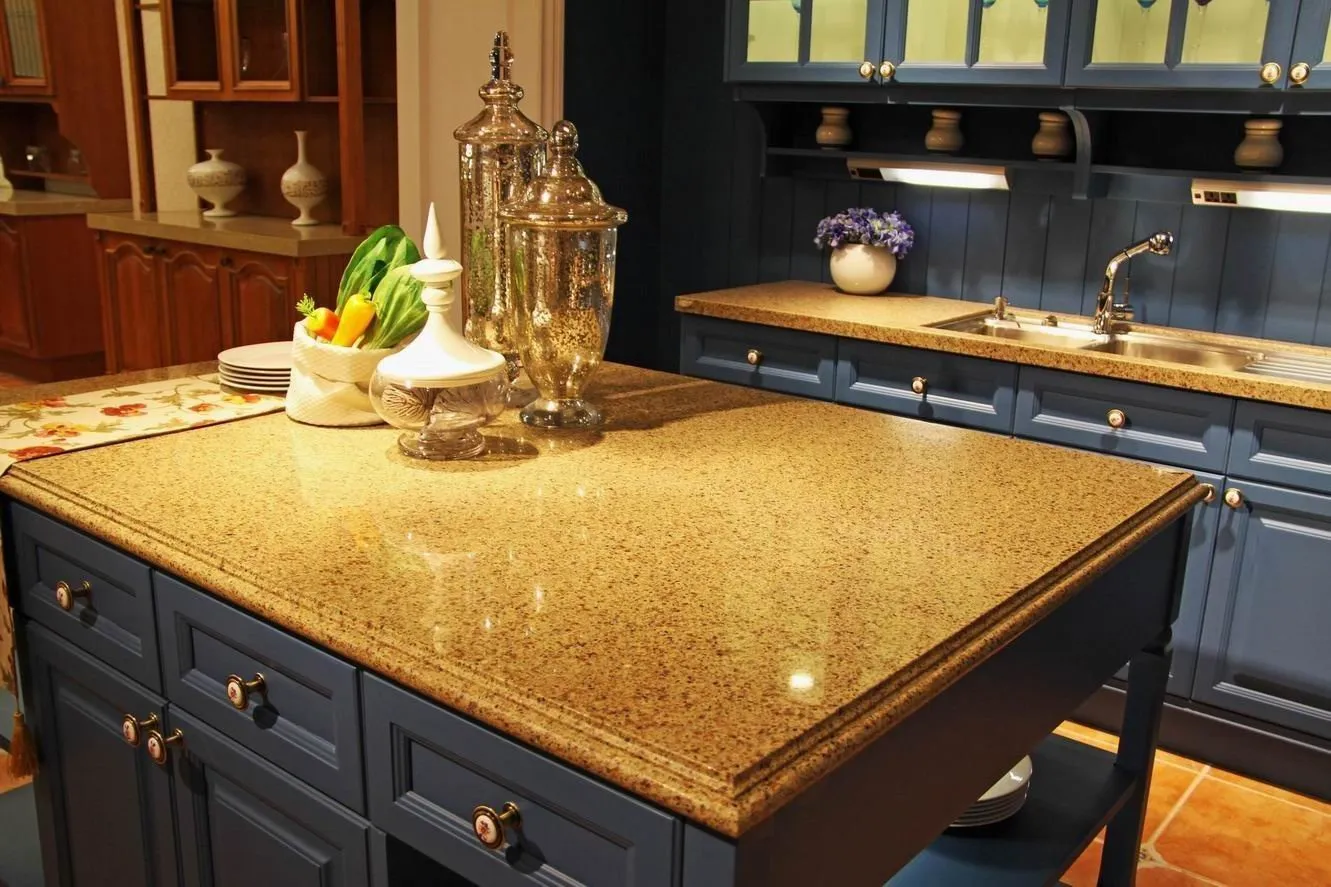
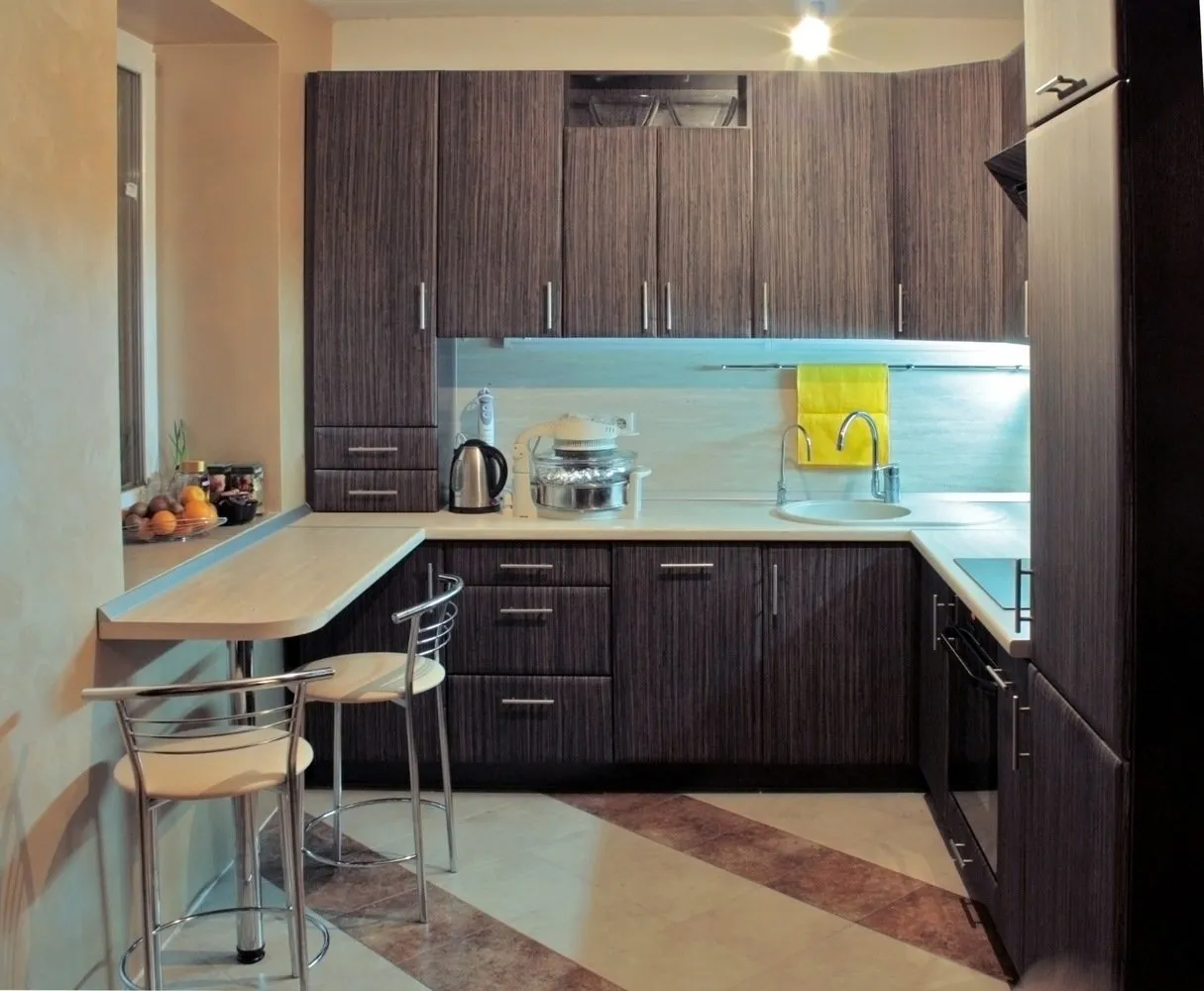
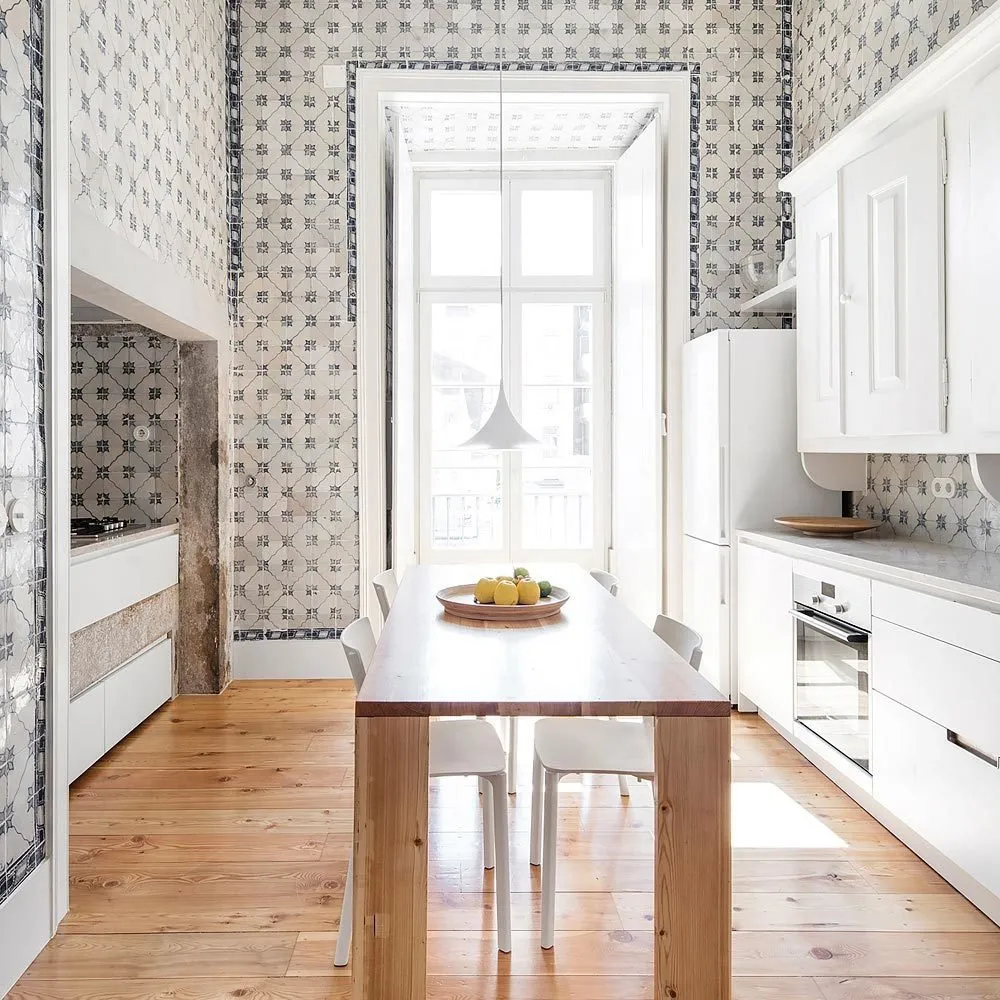
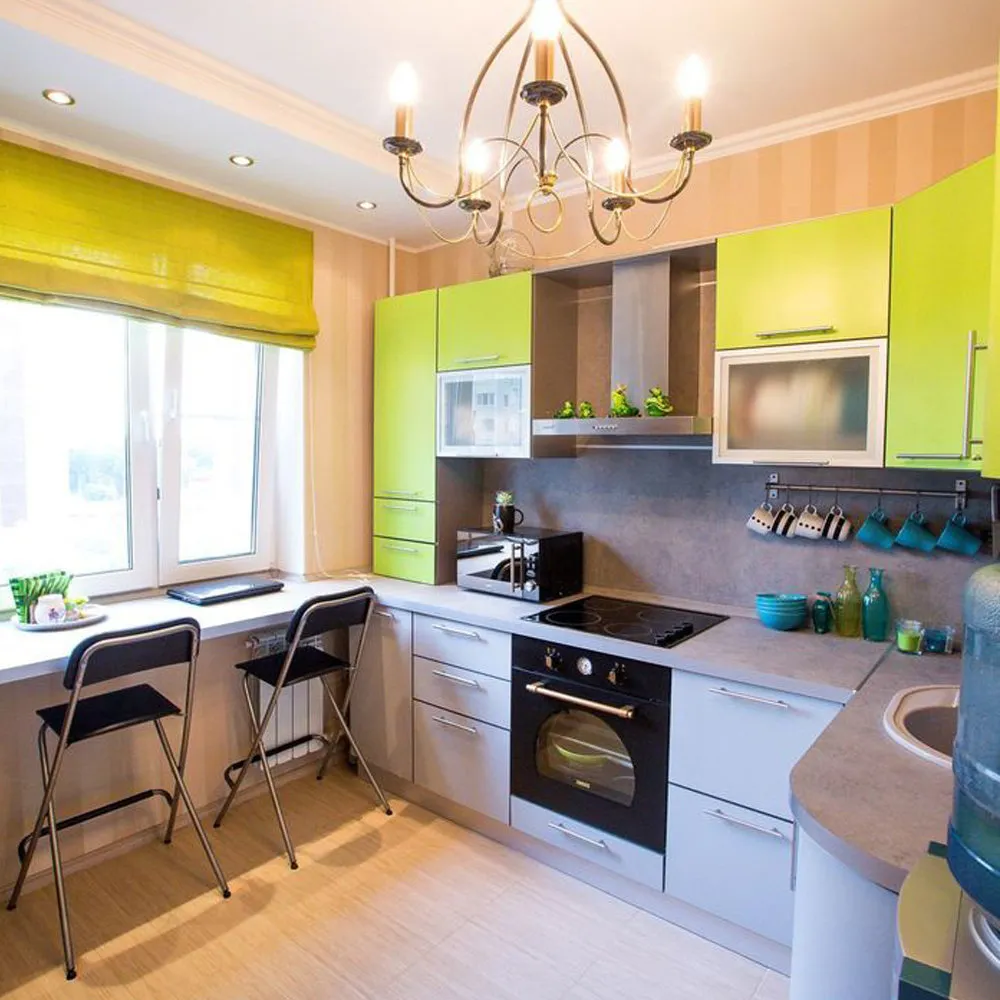
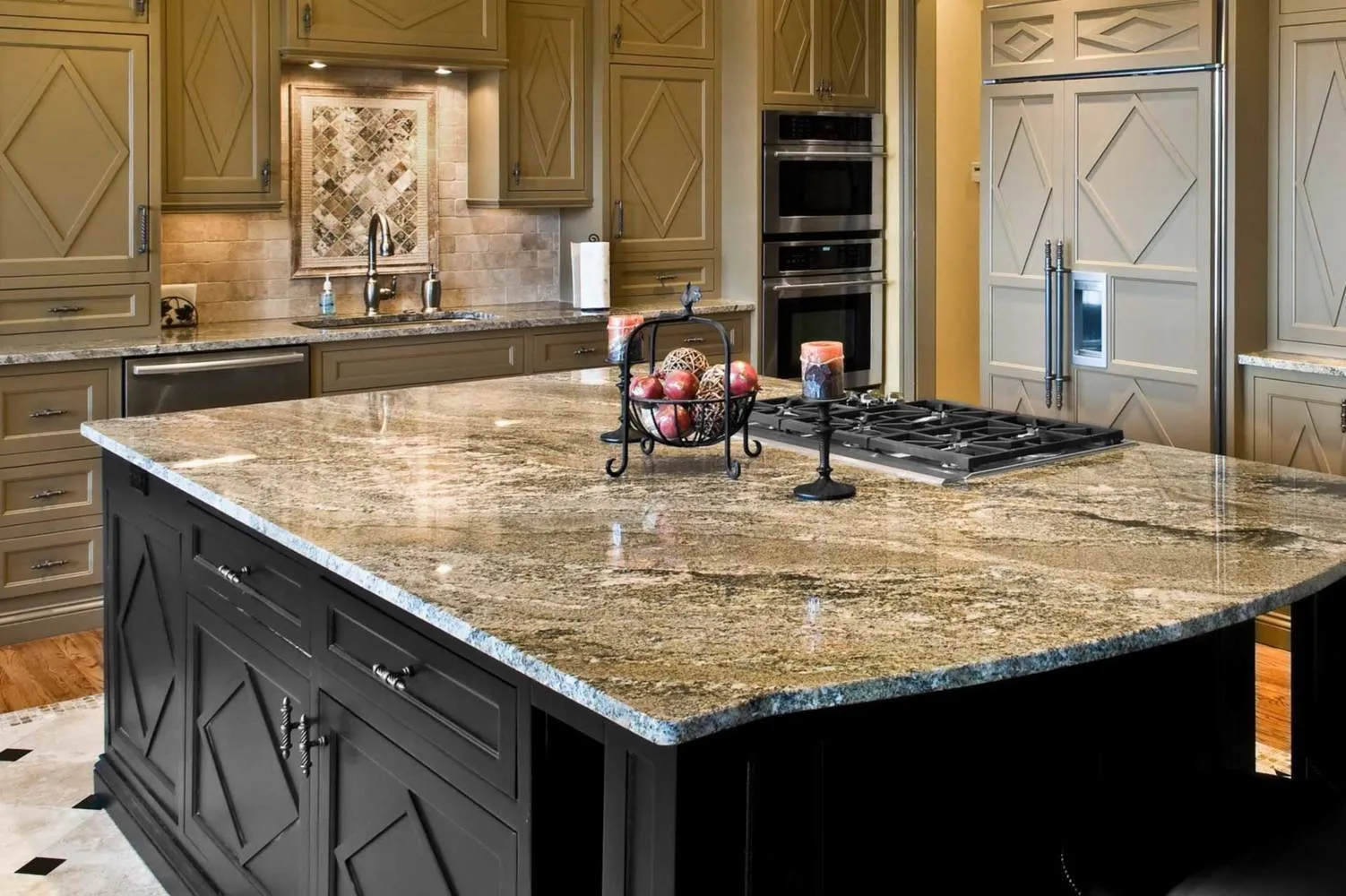
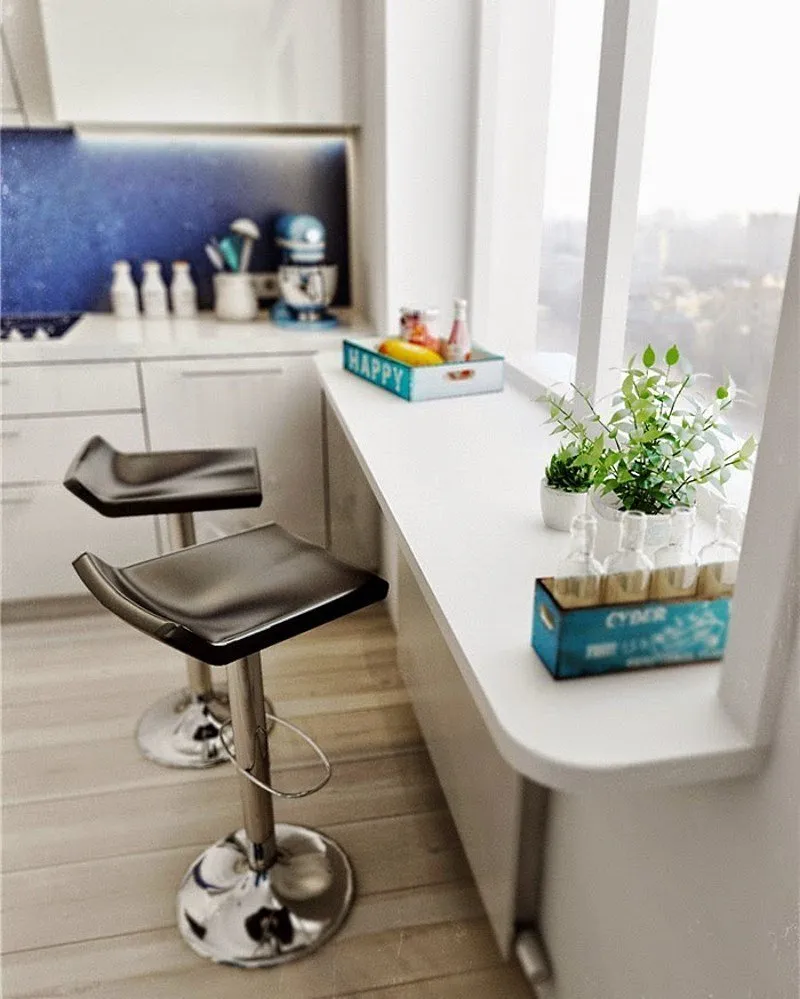
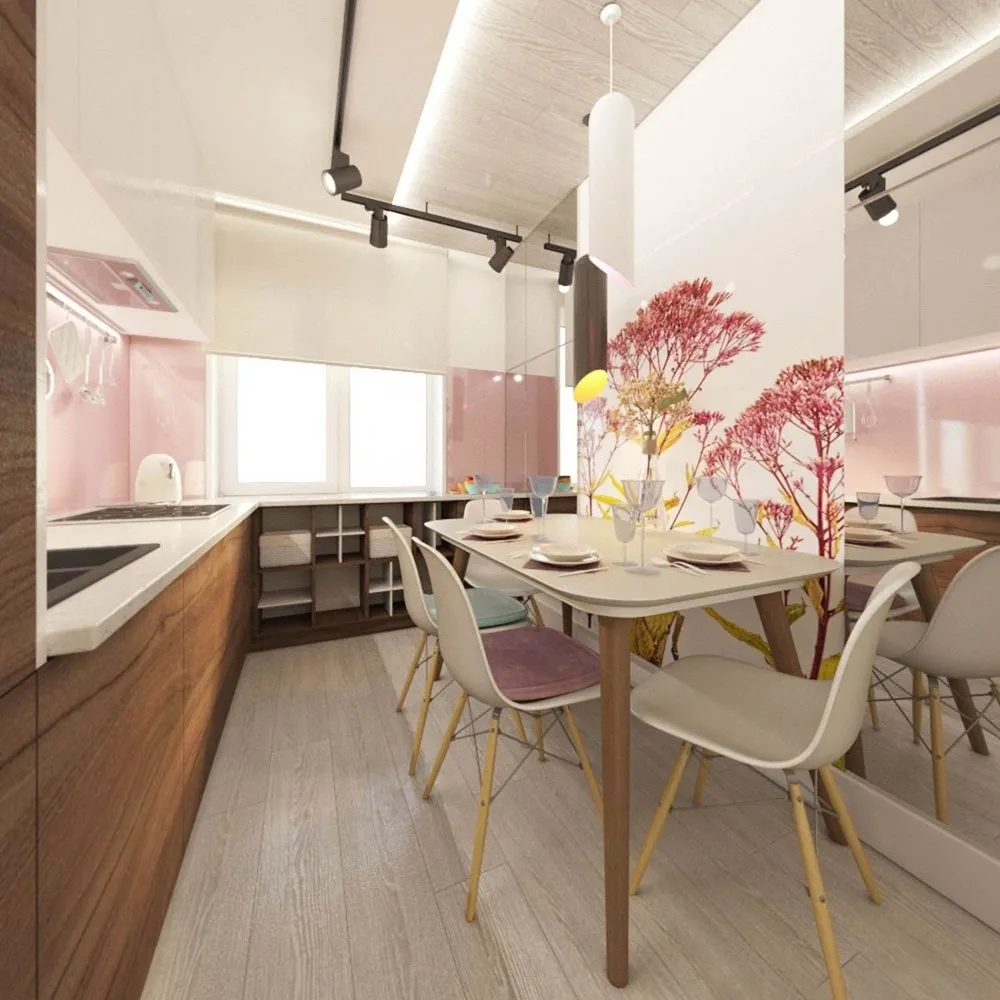
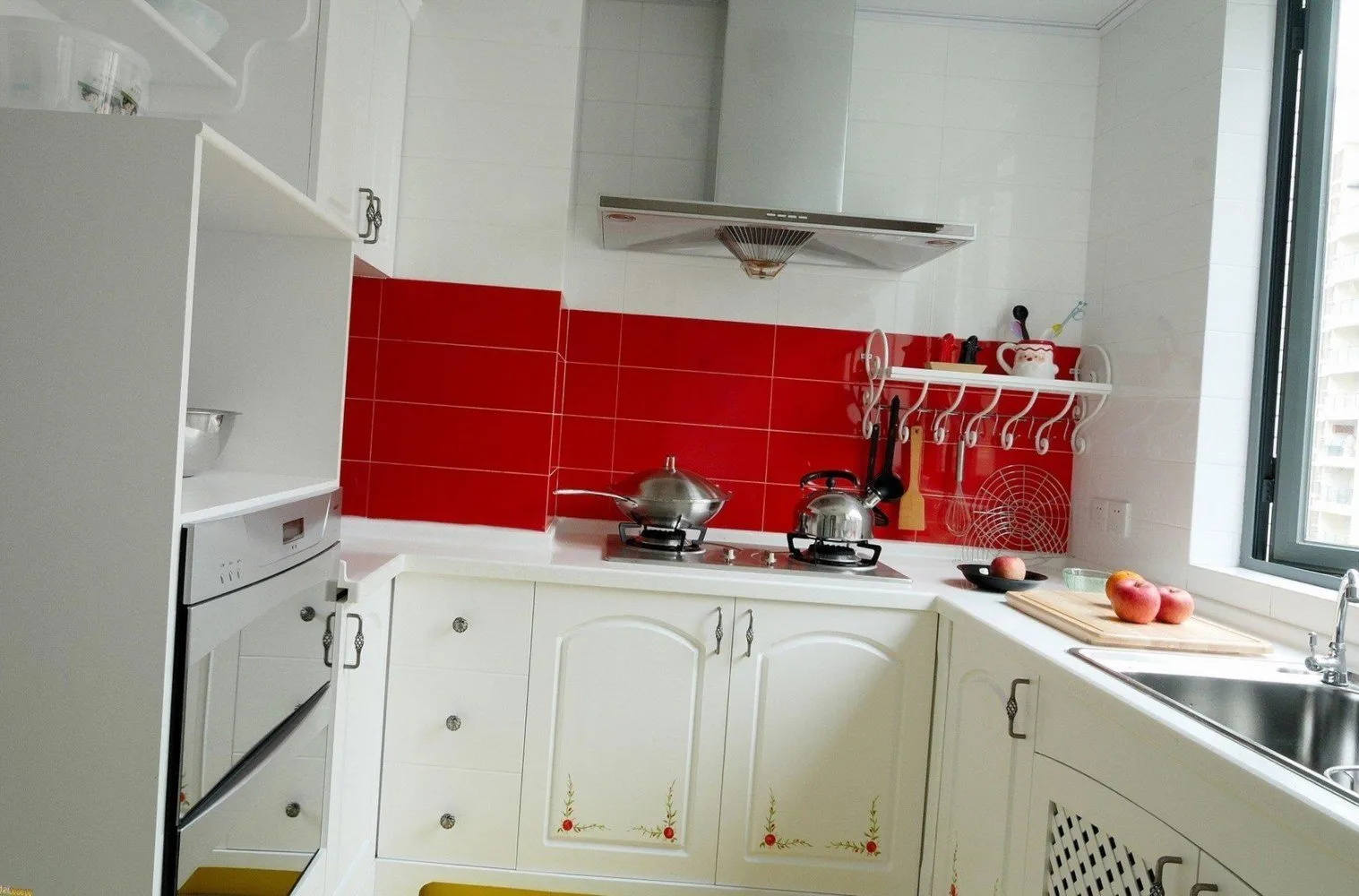
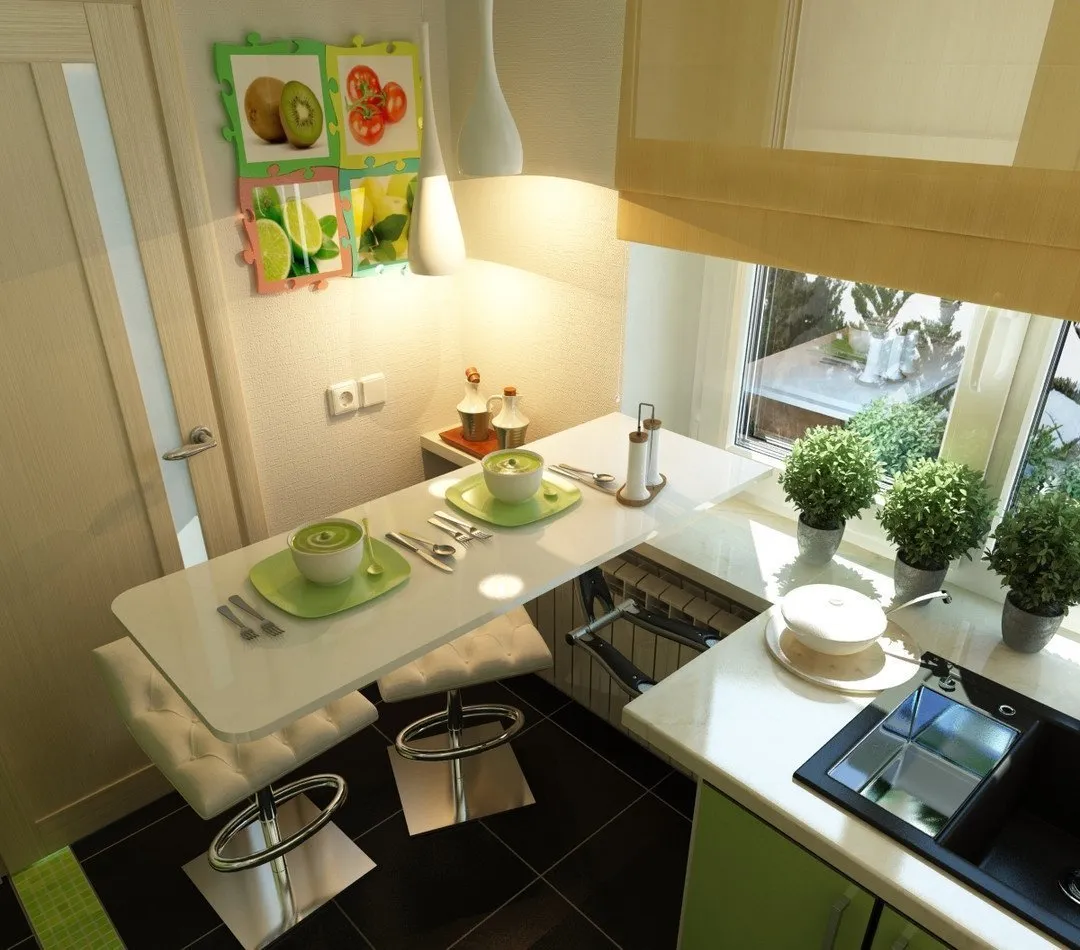
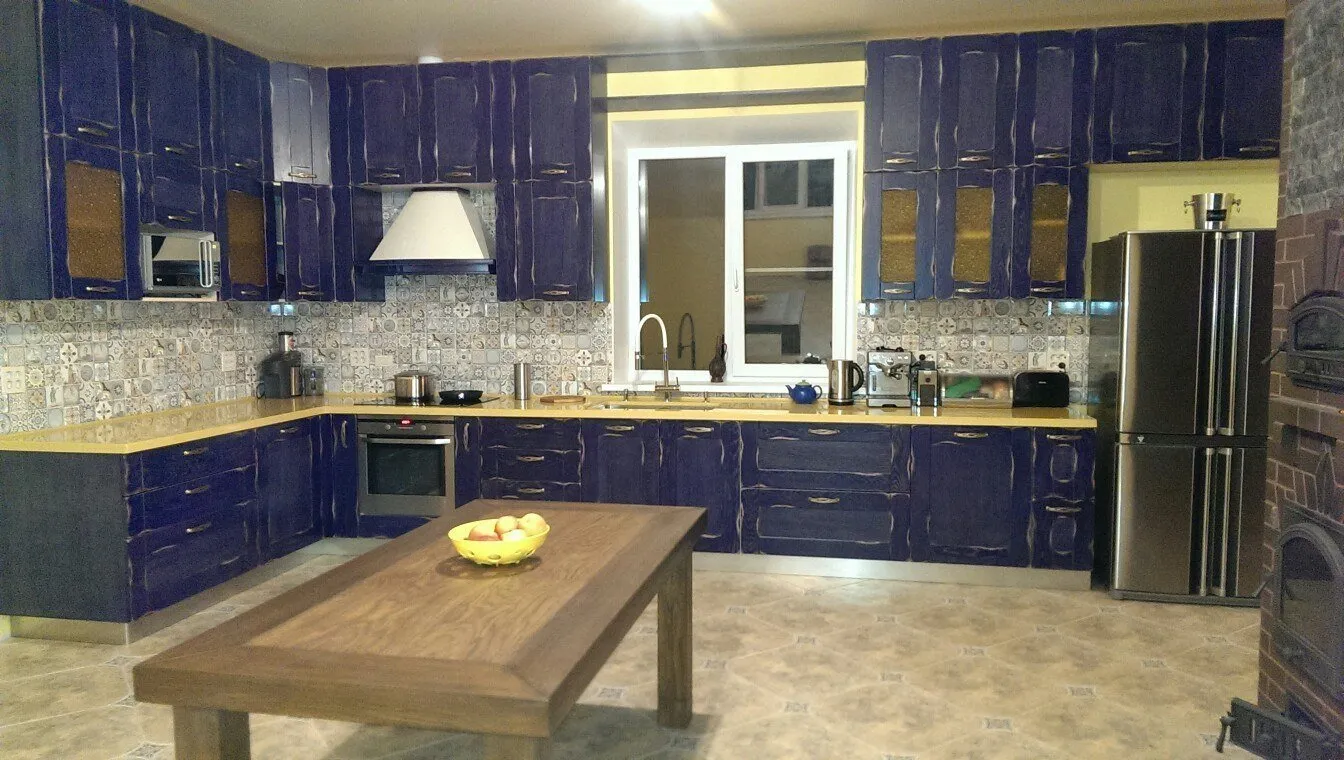
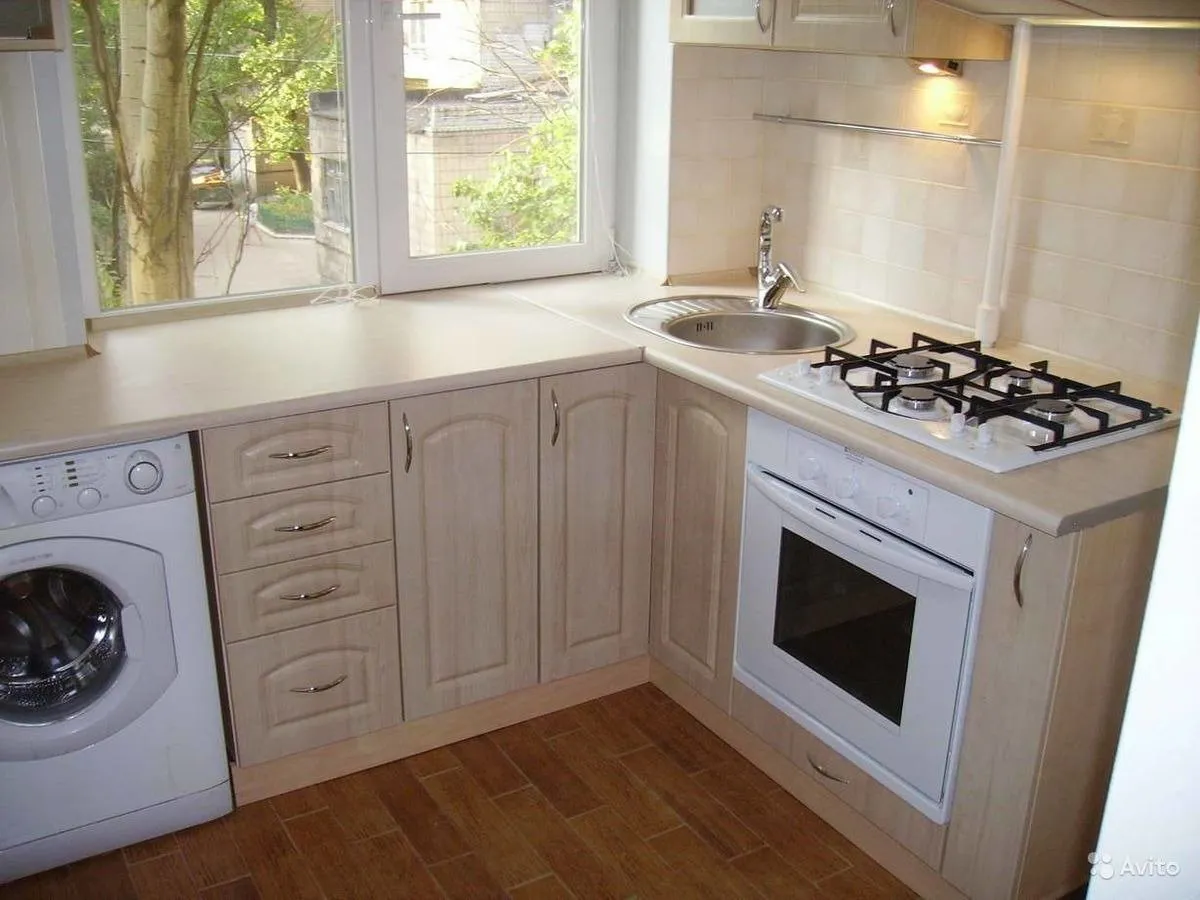
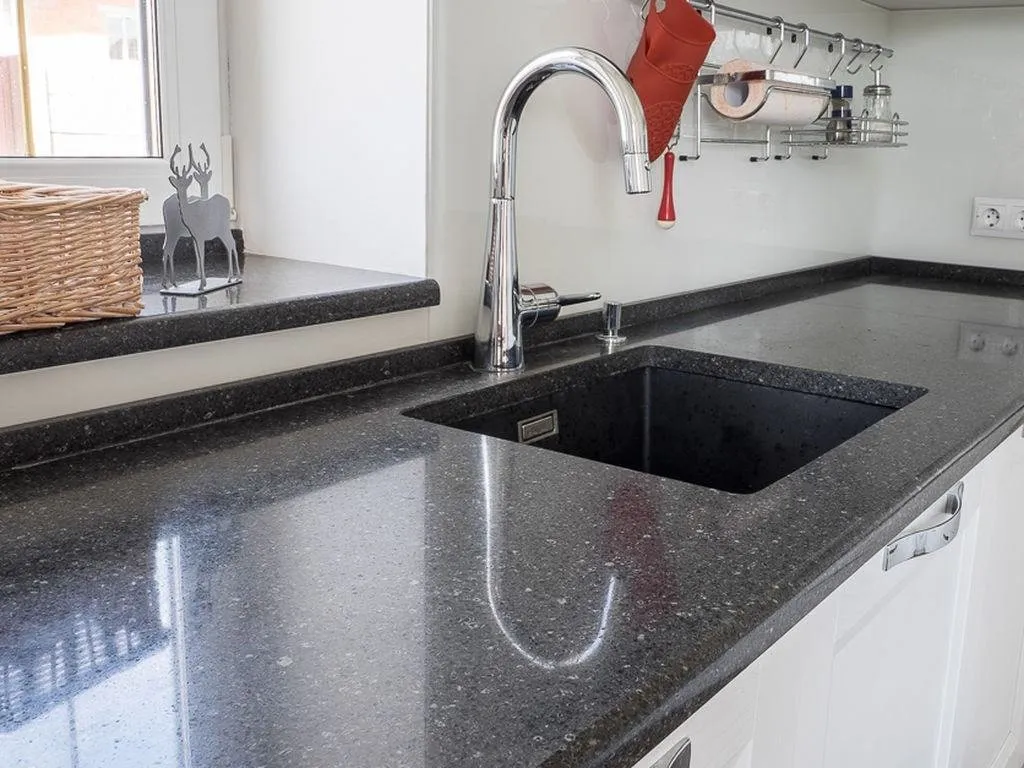
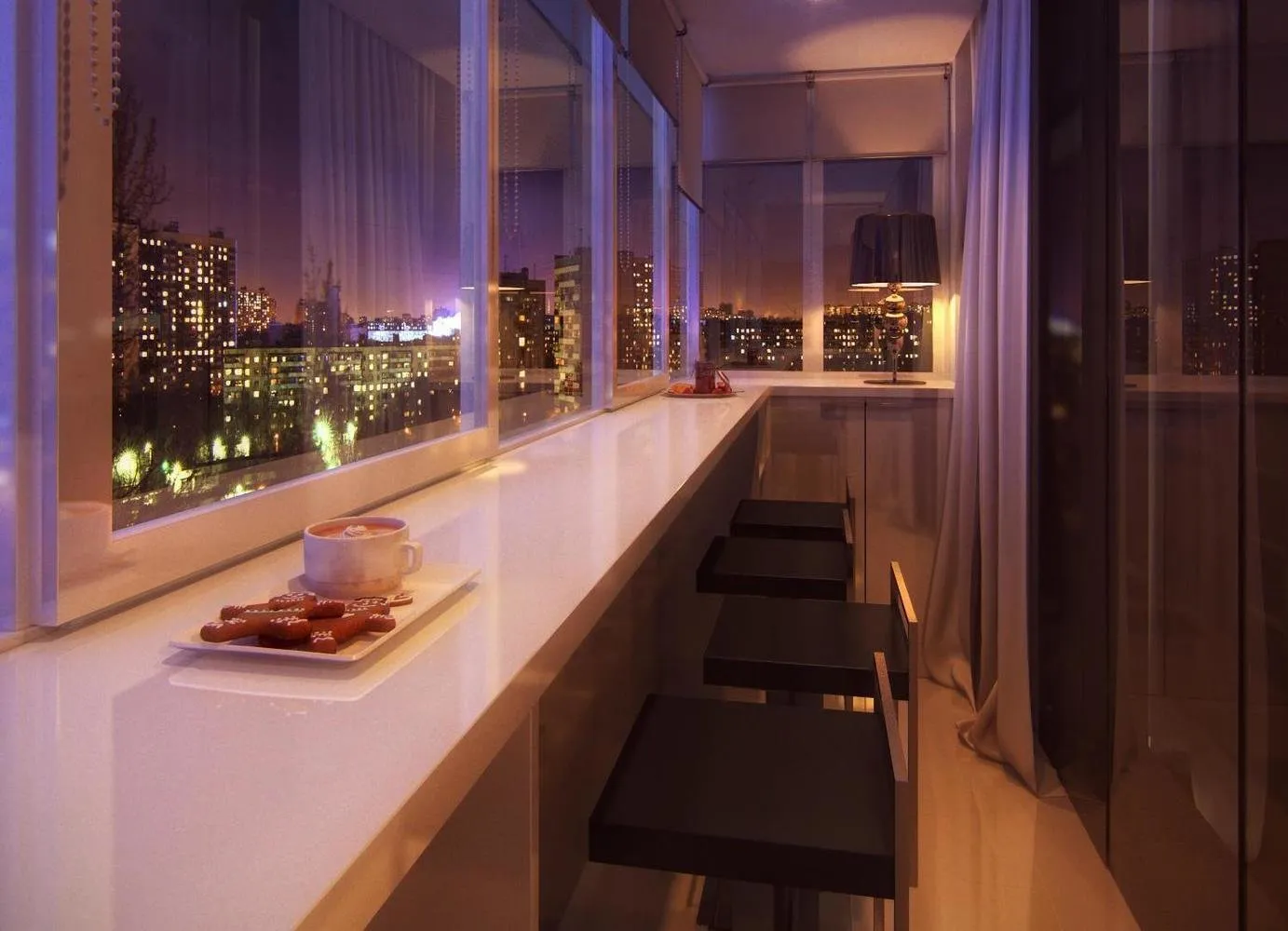
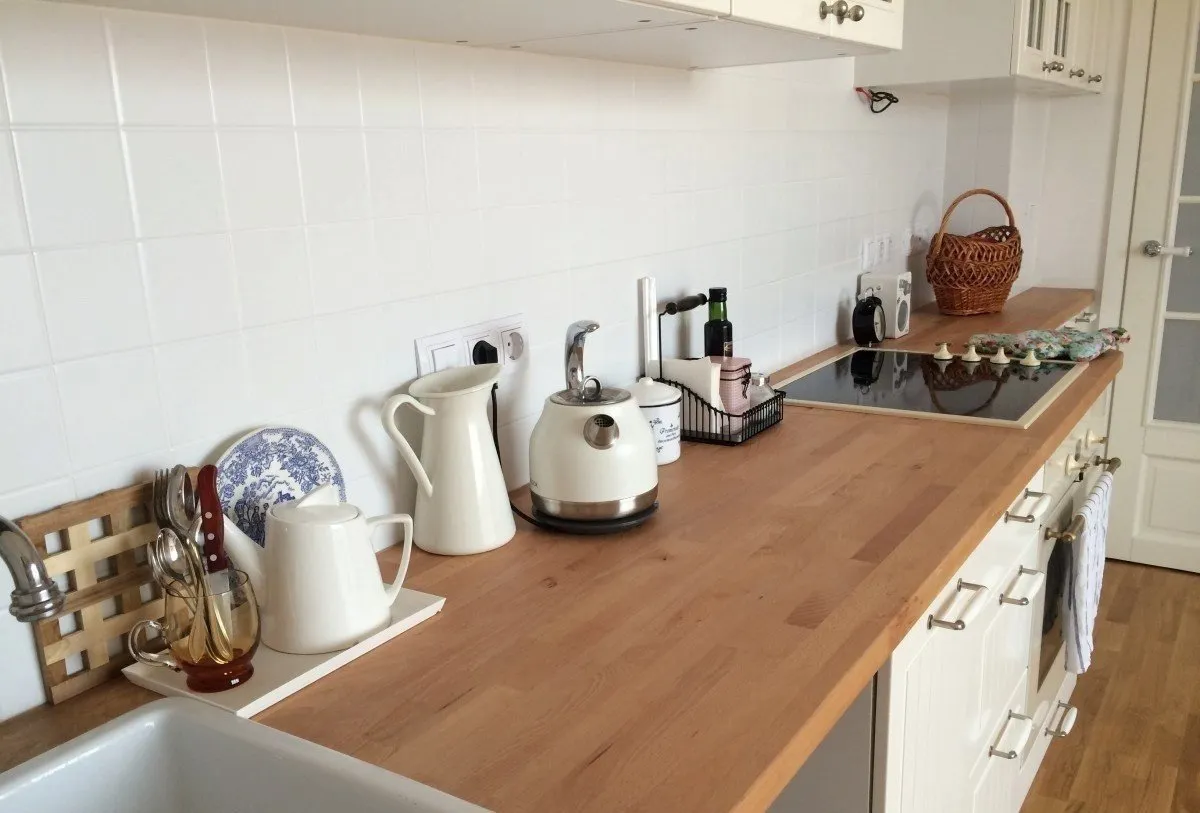
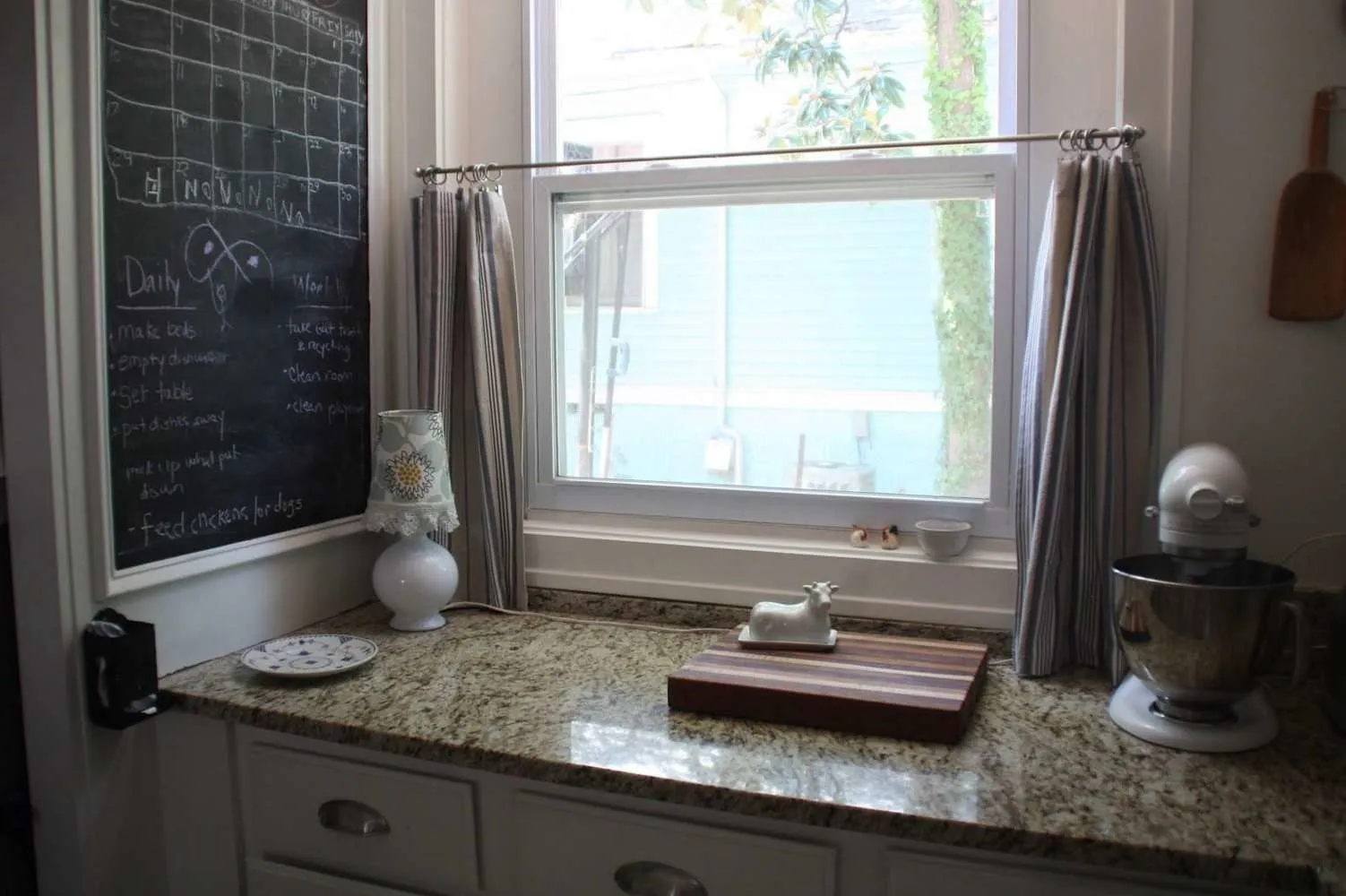
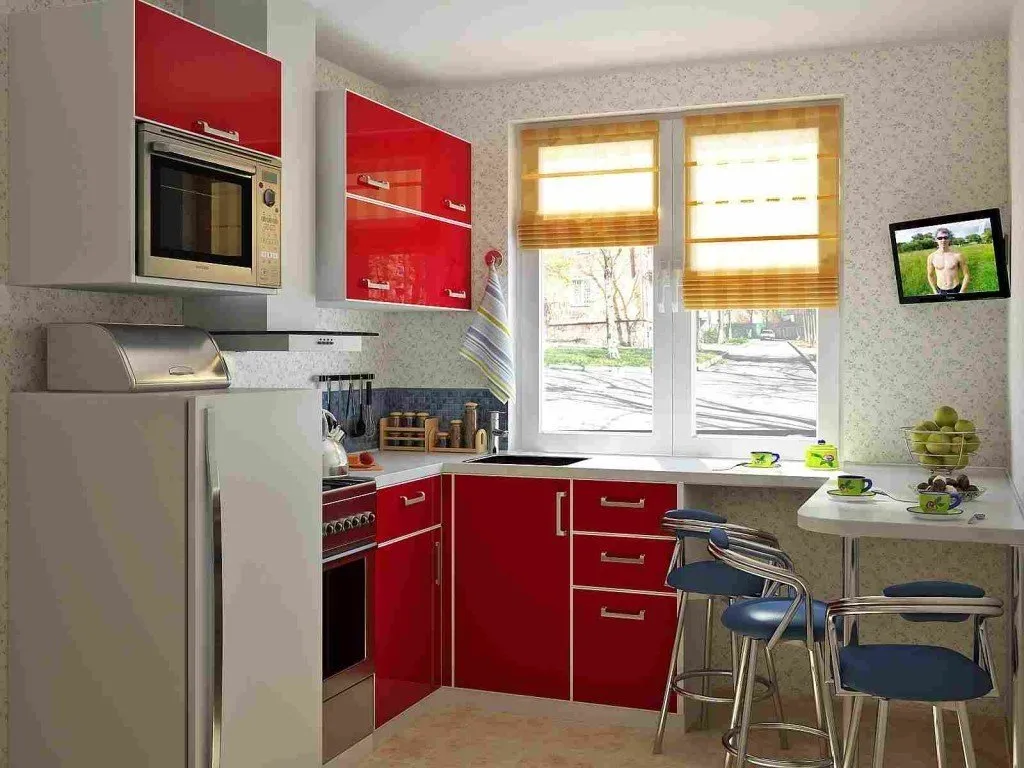
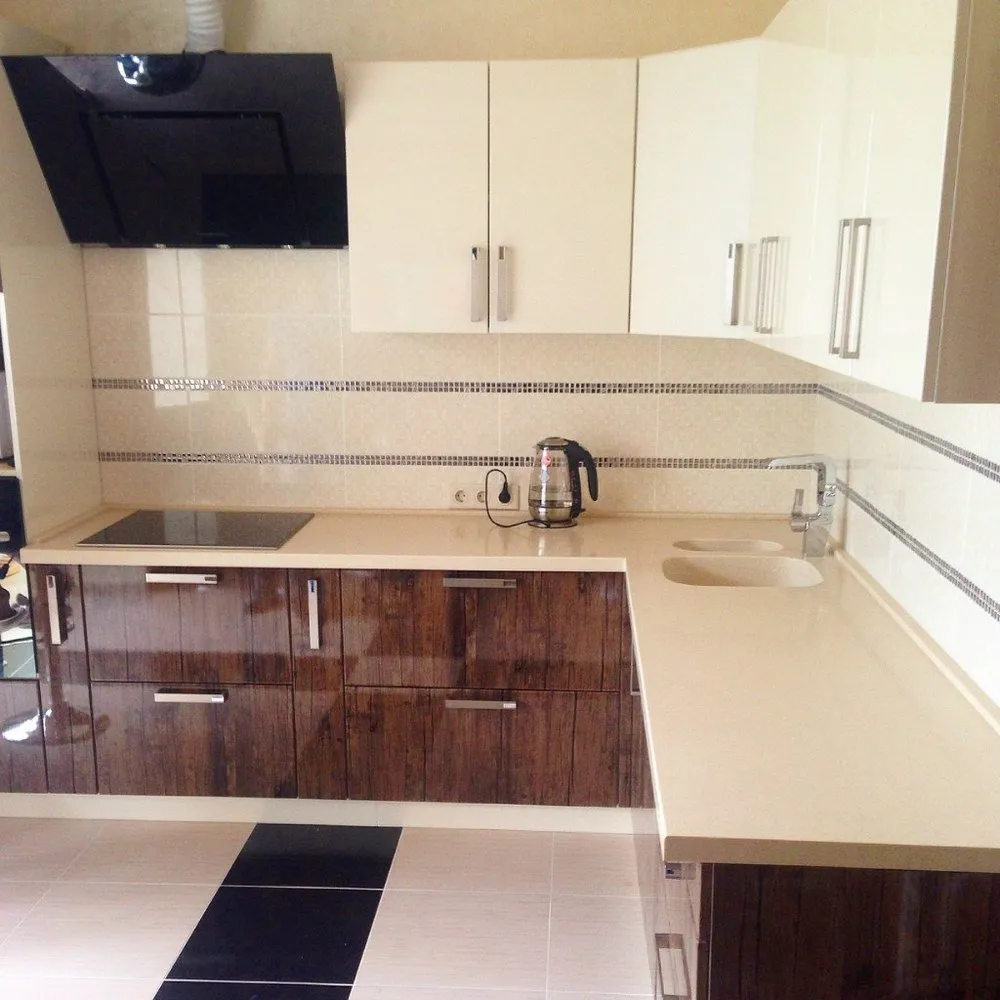
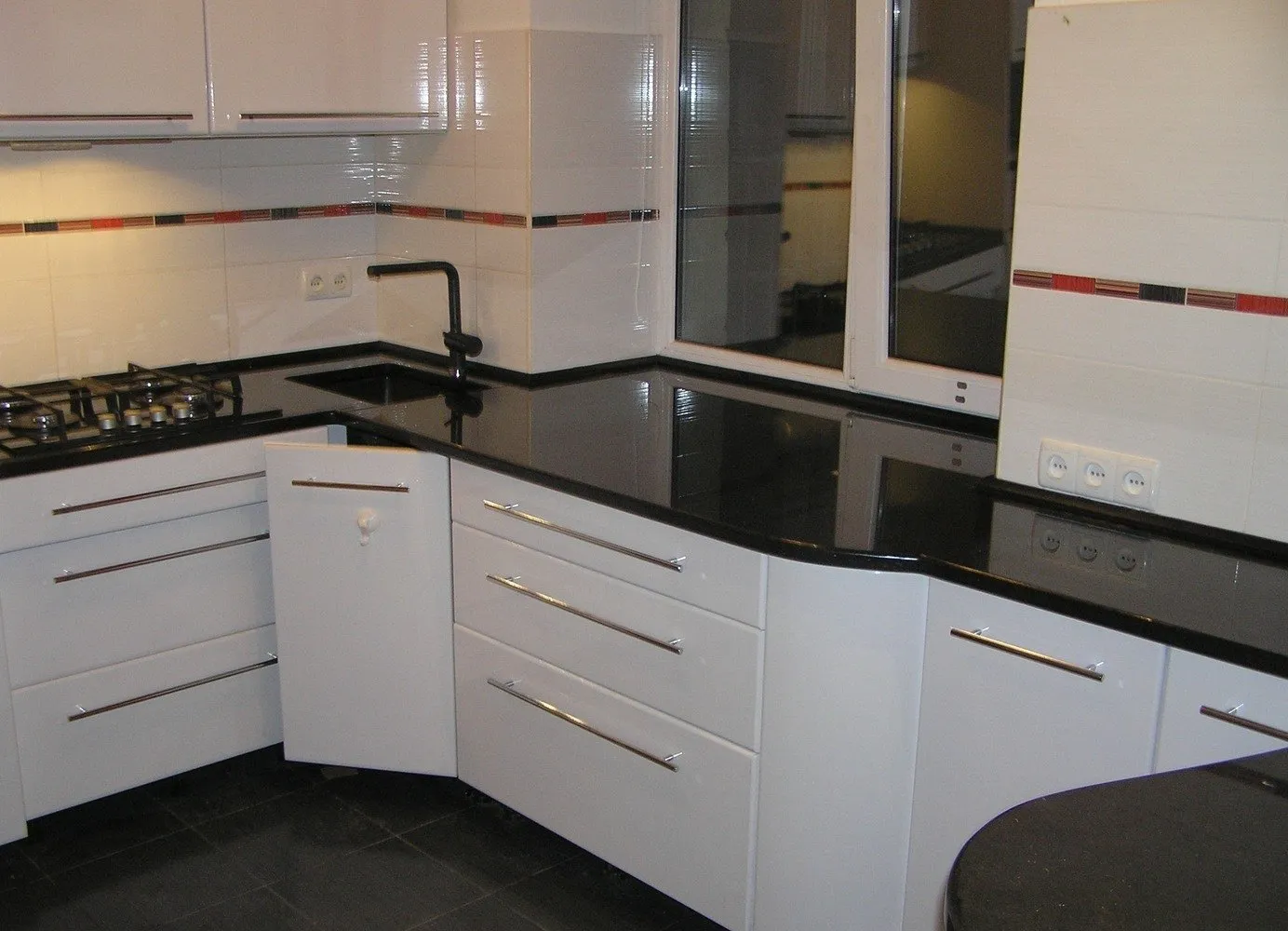
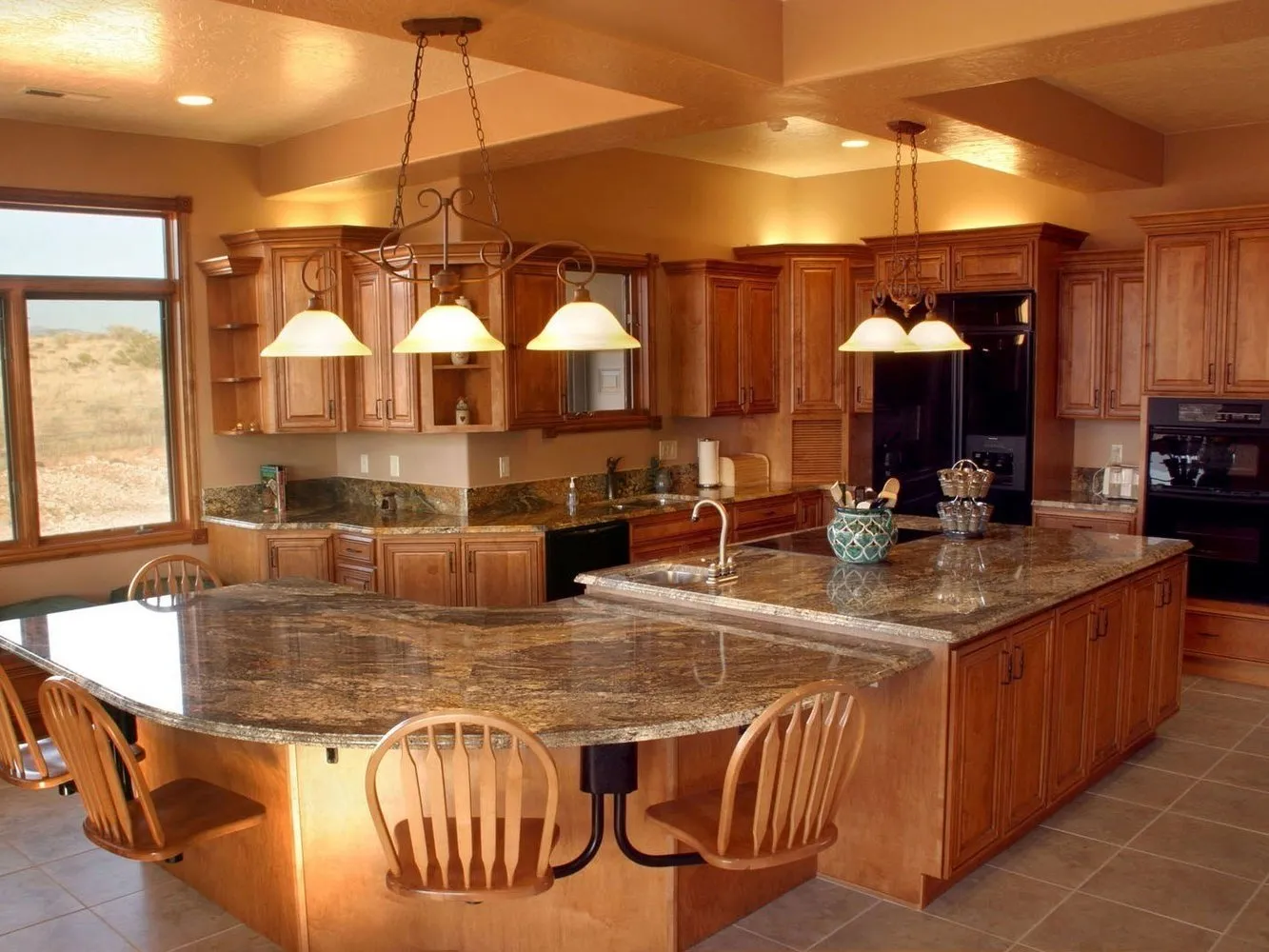
Options for Window Sill-Counters on the Kitchen
Need a renovation specialist?
Find verified professionals for any repair or construction job. Post your request and get offers from local experts.
You may also like
More articles:
 How to Create a Cozy Bedroom: 10 Design Ideas
How to Create a Cozy Bedroom: 10 Design Ideas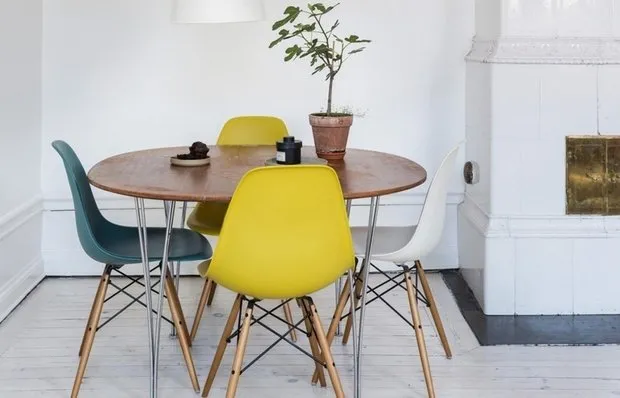 Mixing Different Chairs in Interior Design: 8 Pro Tips
Mixing Different Chairs in Interior Design: 8 Pro Tips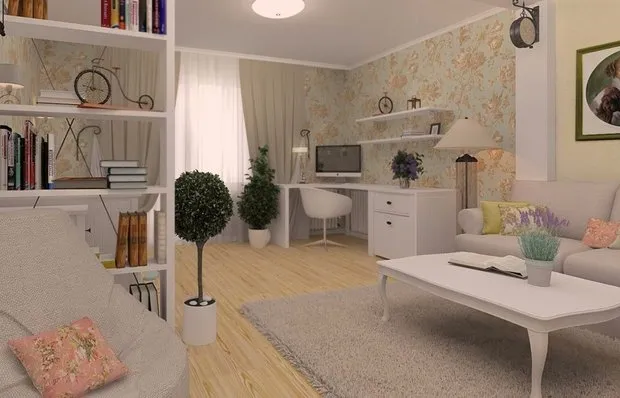 How to Decorate a Living Room and Children's Room in One Space?
How to Decorate a Living Room and Children's Room in One Space?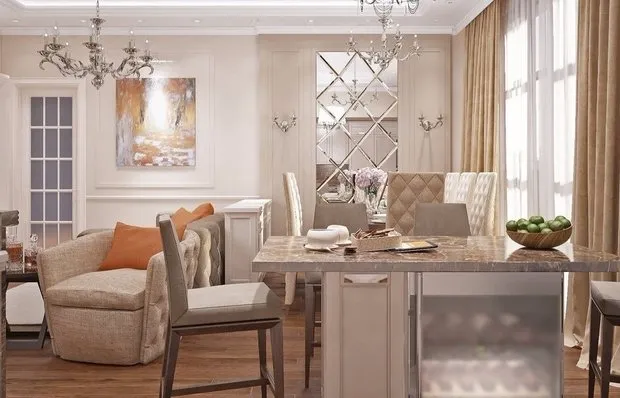 Mirrors in Interior Design
Mirrors in Interior Design How to Legally Attach a Balcony or Loggia: Expert Tips
How to Legally Attach a Balcony or Loggia: Expert Tips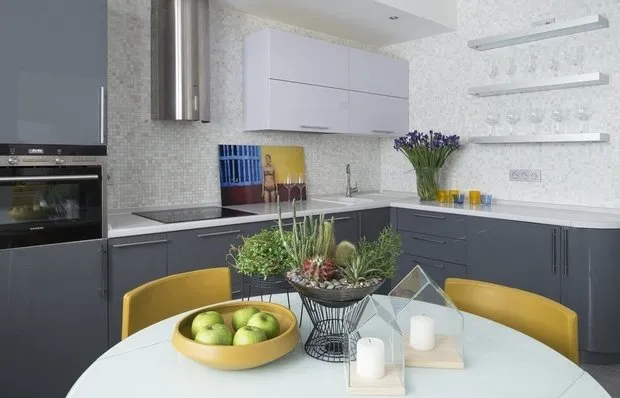 How to Replace a Gas Stove with an Electric One: 6 Expert Tips
How to Replace a Gas Stove with an Electric One: 6 Expert Tips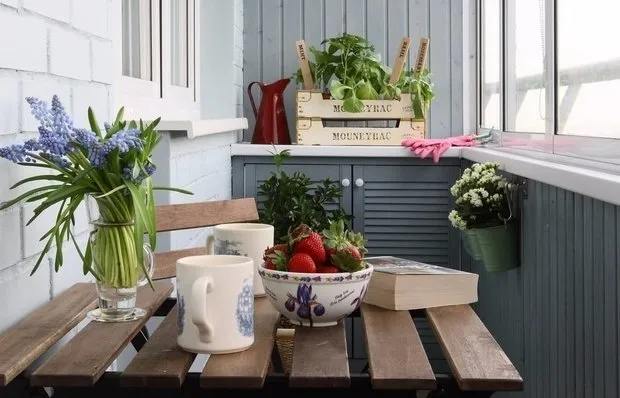 How to Insulate a Balcony or Loggia: Expert Tips
How to Insulate a Balcony or Loggia: Expert Tips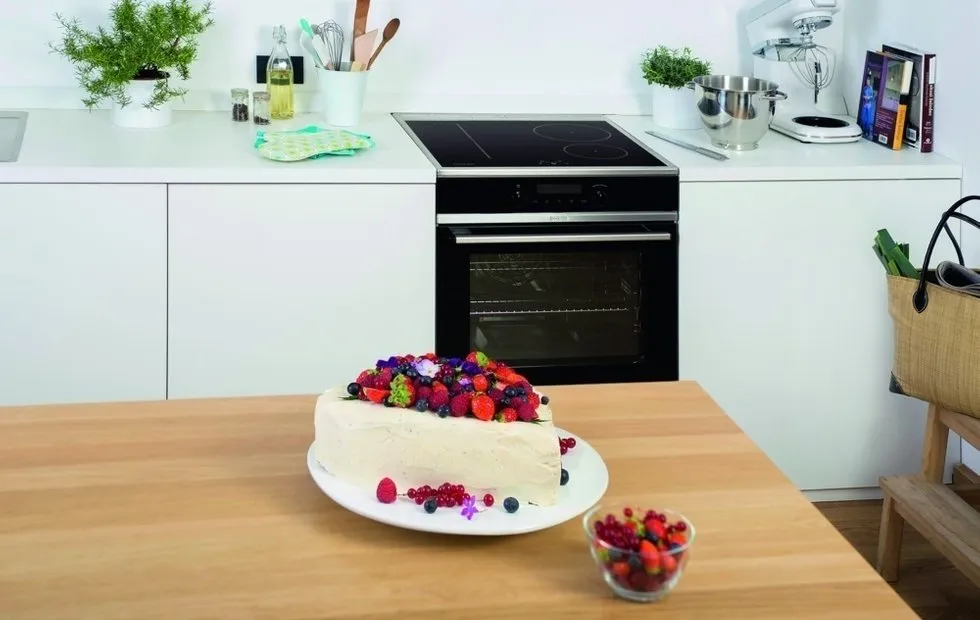 How to Choose Kitchen Appliances: 6 Relevant Tips
How to Choose Kitchen Appliances: 6 Relevant Tips